2024 – 2025
ELEVATE YEAR 11 FOR ADVENTUROUS LEARNERS

Subject Selection
Handbook

June 2023
Introduction
Welcome to the Queen Margaret College Year 11 Subject Selection Handbook. The purpose of this booklet is to help students make the wisest subject choices now and in the long term, bearing in mind that at the end of Year 11 students have the opportunity to choose which senior secondary school qualification they will take in Years 12 and 13, the International Baccalaureate Diploma or the National Certificate of Educational Achievement (NCEA). Students are advised to study this guide very closely – in particular the curriculum overview at the back of this book – and carefully discuss options with those people who can assist them to make an informed choice. As well as talking to teachers, parents and friends, help is available from a variety of sources.
STAFF WHO CAN ASSIST WITH COURSE SELECTION
Principal Jayne-Ann Young
NCEA Change Coordinator
Deputy Principal – Learning and Teaching
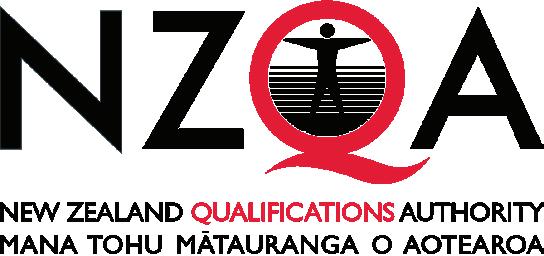
Deputy Principal – Wellbeing
Careeers Director
HEAD OF LEARNING AREAS
English
Humanities
Languages
Mathematics
Tarron Stead
Holly Payne
Fiona Crawford
Bee Laing
Annabel Harris
Adrian Hardy
Caroline Harding

Matthew Kavanagh
PE & Health Tarron Stead
Arts
Science
Technology
Religious Studies
2024 SENIOR SCHOOL DEANS
Year 11
Year 12
Year 13
Tim Jenkin
Rebecca Hickey
Richard Knuckey
Deborah Wilson
Vanessa Petrowski
Florence Hamon
Coralie Morrison
Deans, subject teachers and tutor teachers are more than happy to help but ultimately this is a family decision. Even though it is early days, it is also sensible to check university websites regarding entry requirements for particular courses.
Live. Learn. Lead | Queen Margaret College 3
ELEVATE YEAR 11
FOR ADVENTUROUS LEARNERS
Year 11 Programme
Queen Margaret College is delighted to announce a new Year 11 programme that will further our commitment to futurefocused and adventurous learning.
Starting in 2024, Queen Margaret College is offering a learning model that allows students to gain a full NCEA Level 1 qualification while also preparing them for NCEA Level 2 Certificate and the IB Diploma.
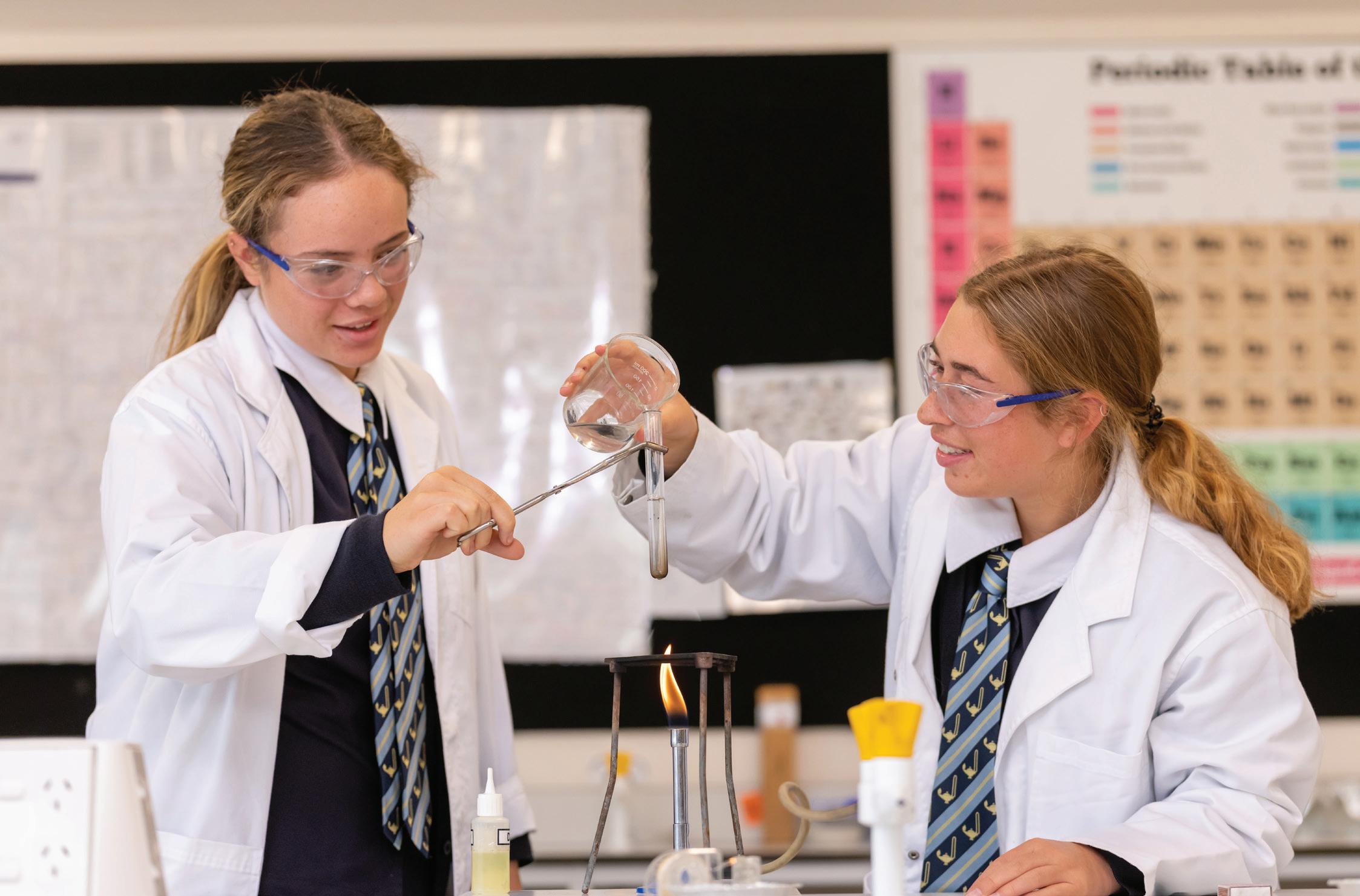
This learning approach is comprehensive; it combines the teaching of three Level 1 achievement standards in each subject area with the learning required to prepare ākonga for both Level 2 NCEA and the IB Diploma. It will encourage students to think critically, problem-solve, collaborate, speak up and challenge the status quo. The programme is designed to cater for the diverse needs and interests of students while equipping them with the knowledge, skills, and values necessary to succeed in the 21st century.
Staff have kept abreast of the changes in NCEA and devised a rigorous programme that embraces our bicultural connections and develops our international mindedness. We are excited to be able to offer two different course options in 2024 for our students to select from.
4 ELEVATE YEAR 11 SELECTION HANDBOOK | 2024 – 2025
Option 1
This course comprises six assessed courses, totalling 95 credits across the subjects. Students will take English, Mathematics and Science (one of two options) and select three other subjects from our current offerings. Students will also take Religious Education (which includes a 5-credit achievement standard) plus Financial Literacy, Be the Change and Health which are not assessed.
Option 2
This course comprises five assessed courses and two semester courses, totalling 80 credits on offer. The semester courses will not be assessed but will have key learning outcomes that will challenge the students’ thinking and extend their skills, while providing an opportunity to experience subjects not previously offered. Semester course options are outlined on pages 28-30
Students will take English, Mathematics and Science (one of the two options) and select two other subjects from our current offerings. Students will take Religious Education (which includes a 5-credit achievement standard) plus Financial Literacy, Be the Change and Health which are not assessed.
Live. Learn. Lead | Queen Margaret College 5
English Maths Science Choice 1 Choice 2 Choice 3 ϐ R.E ϐ Financial Literacy ϐ Be the Change ϐ Health 15 credits 15 credits 15 credits 15 credits 15 credits 15 credits English Maths Science Choice 1 Choice 2 Semester Course 1 Semester Course 2 ϐ R.E ϐ Financial Literacy ϐ Be the Change ϐ Health 15 credits 15 credits 15 credits 15 credits 15 credits
ELEVATE YEAR 11
National Certificate of Educational Achievement
Students entering Year 11 should be making subject choices related to their long-term educational goals and (possible) career choices. At this stage, students are encouraged to keep their options open and take a wide range of subjects. Information gathering is important. Students should be aware of their abilities, aptitudes and interests and are encouraged to take this information into account when they select their subjects.
In Year 11 the following are compulsory subjects: English, Mathematics, at least one Science subject, Religious Education, and a programme of Financial Literacy, Health, and be the change Students choose THREE other subjects.

Please note: Every effort is made to accommodate each student’s subject choices. However, sometimes it is not always possible to do this. Where there are clashes in subject choice or the class size is too small, students may be asked to make another choice.
ϐ NCEA comprises three levels of achievement. NCEA Level 1, 2 and 3. Year 11 students sit NCEA Level 1. For a student to be awarded NCEA Level 1 she must achieve 60 credits.
ϐ Additionally, students are to achieve 20 literacy and numeracy credits, known as the co-requisits.
The NCEA qualification encourages students to achieve the best possible results and there are two endorsements to acknowledge this:
1. NCEA Level 1 endorsed certificates
ϐ NCEA Level 1 certificate endorsed with Excellence which requires 50 credits at Excellence
ϐ NCEA Level 1 certificate endorsed with Merit which requires 50 credits at Merit or higher
ϐ Any results from Year 10 will be included in this endorsement.
2. NCEA course endorsements
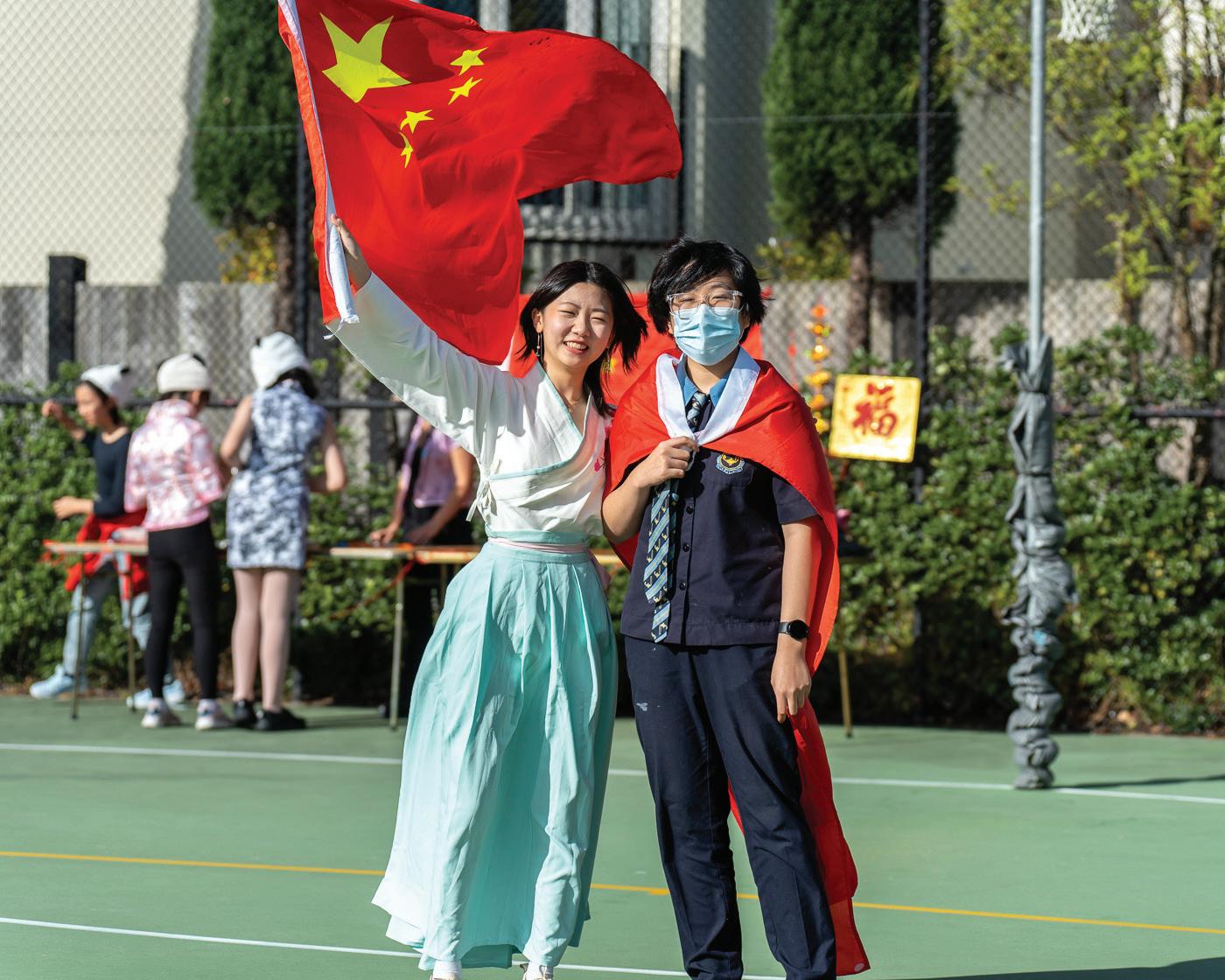
ϐ If a student achieves 14 credits at Excellence in a subject in one calendar year, they will have the subject endorsed with Excellence
ϐ If a student achieves 14 credits at Merit or higher in a subject in one calendar year, they will have the subject endorsed with Merit
ϐ The course endorsement must include at least 3 credits from externally assessed standards and 3 credits from internally assessed standards (there are some exceptions to this requirement)
ϐ The course endorsement applies in the year the subject is studied and credits obtained in previous years cannot be carried over.
6 ELEVATE YEAR 11 SELECTION HANDBOOK | 2024 – 2025
The achievement standards listed for each subject have been chosen carefully, but are subject to change.
Course endorsements
Course endorsement provides recognition of student achievement in an individual course.
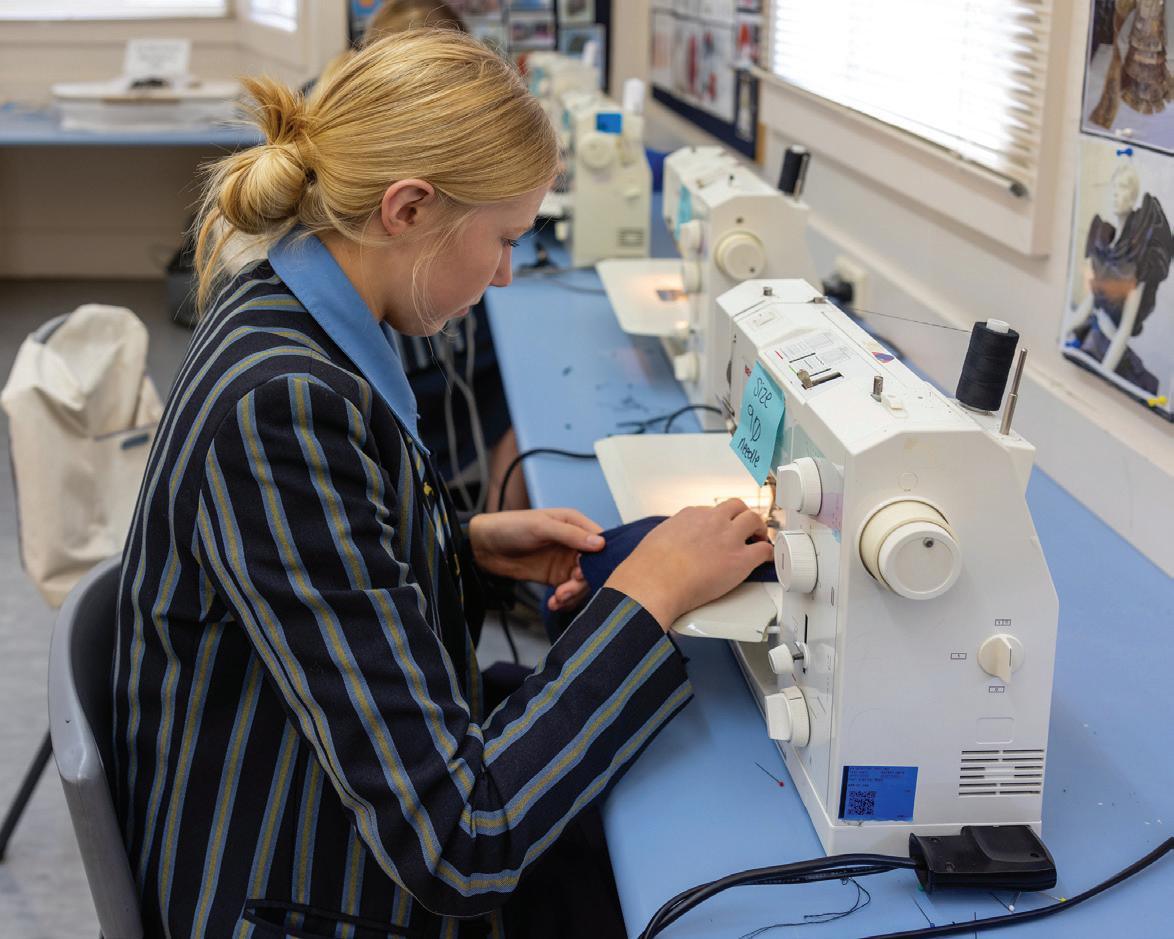
Students will gain an endorsement for a course if, in a single school year, they achieve:
ϐ 14 or more credits at Achieved or Merit or Excellence, and
ϐ at least 3 of these credits from externally assessed standards and 3 credits from internally assessed standards.
Each subject listed in this booklet shows the likely combination of achievement standards to be offered in the course. The exact achievement standards to be assessed will be confirmed with students at the start of the year. Further information on NCEA is available on the NZQA Website: www.nzqa.govt.nz
Examination Fees
NZQA no longer charges fees for domestic students to enter NCEA or Scholarship Assessments. Fees are still payable by international students. Further information can be found at www.nzqa.govt.nz
However, students will be subscribed to a www.educationperfect.com package. This will provide access to learning materials in languages, mathematics, science and other subject areas. There will be a single charge of approximately $70.

Live. Learn. Lead | Queen Margaret College 7
The achievement standards listed for each subject have been chosen carefully, but are subject to change.
ELEVATE YEAR 11
Subjects
BIOLOGY, CHEMISTRY & ENVIRONMENTAL SCIENCES
Recommended Previous Study
Completion of Year 10 Science or approval by Deputy Principal – Learning and Teaching.

Course Description
This course integrates the study of biology, chemistry and environmental science topics. Students will build their understanding of fundamentals ideas surrounding chemical reactions, genetics and environmental issues as well as being introduced to essential science skills. This
course provides a foundation for further study in biology, chemistry and environmental systems and societies. Environmental systems and societies is only available in the Diploma pathway in Year 12.
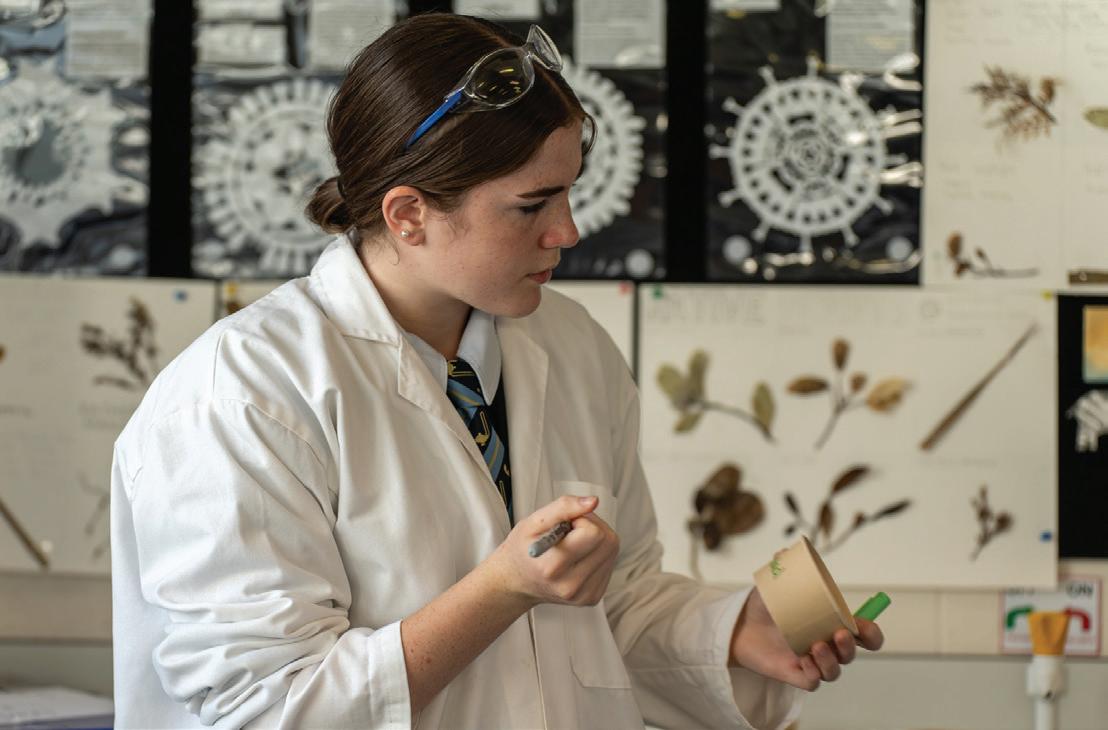
Contributions
ϐ A student workbook will be provided with a small cost. This is to be confirmed.
8 ELEVATE YEAR 11 SELECTION HANDBOOK | 2024 – 2025
The achievement standards listed for each subject have been chosen carefully, but are subject to change.
Achievement Standard Title Standard Number Version Credits Int/ Ext Demonstrate understanding of the use of a range of scientific investigative approaches in a context AS91921 Science 1.2 2 5 Internal Demonstrate understanding of genetic variation in relation to an identified characteristic AS92022 Chemistry and Biology 1.3 2 5 External Demonstrate understanding of a chemical reaction in a specific context AS92021 Chemistry and Biology 1.2 2 6 Internal
ASSESSMENT
CHEMISTRY & PHYSICS
Recommended Previous Study
Completion of Year 10 Science or approval by Deputy Principal – Learning and Teaching.

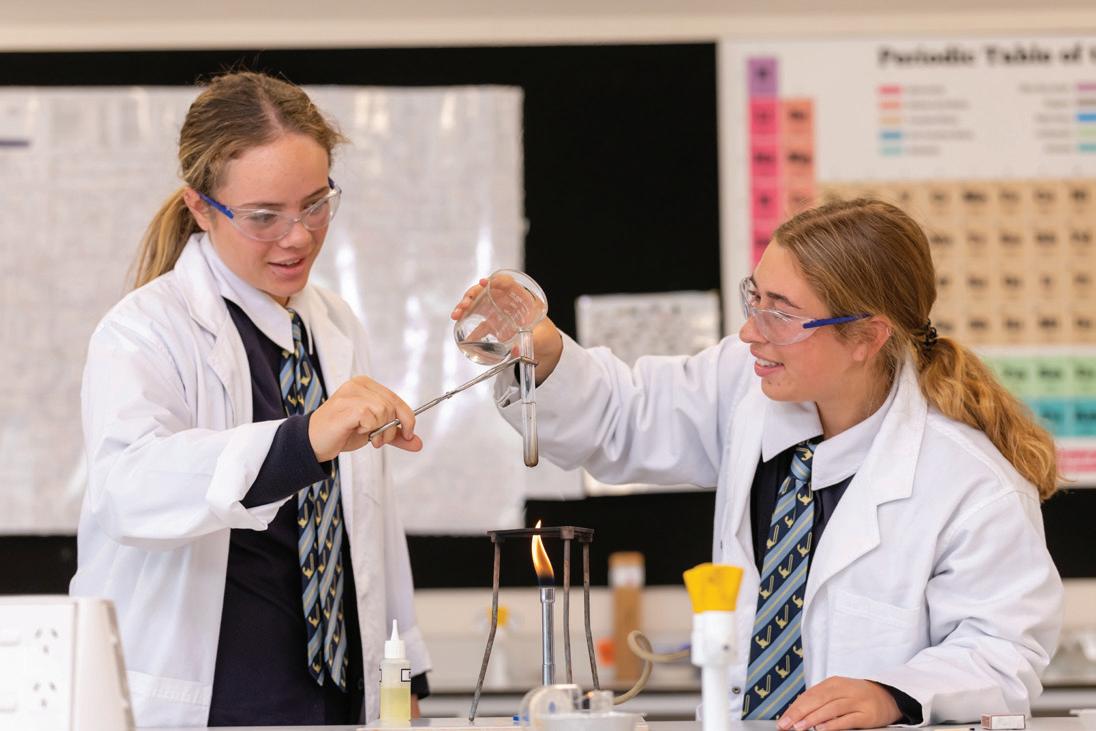
Course Description
This course integrates the study of physics and chemistry. Students will build their understanding of fundamental ideas surrounding physics concepts, chemical and physical properties and the Earth systems as well as being introduced to essential science skills. This course provides a foundation for further study in physics and chemistry.
ASSESSMENT
Demonstrate understanding of how the properties of chemicals inform their use in a specific context
Demonstrate understanding of human induced changes within the Earth system
Contributions
ϐ A student workbook will be provided with a small cost. This is to be confirmed.
These standards are subject to change pending new material being released by NZQA.
Live. Learn. Lead | Queen Margaret College 9
The achievement standards listed for each subject have been chosen carefully, but are subject to change.
Achievement Standard Title Standard Number Version Credits Int/ Ext (*) Demonstrate
of energy in a physical system AS92047 Physics Earth and Space Science 1.4 1 5 External
understanding
AS92023 Chemistry and Biology 1.4 1 4 External
AS92044 Physics Earth and Space Science 1.1 1 5 Internal
ELEVATE YEAR 11
CHINESE
Recommended Previous Study
Completion of Year 10 Chinese, at least two years previous study of Chinese or approval by Deputy Principal – Learning and Teaching.

Course Description
In this course, students will build on their prior knowledge and further develop communicative and interactive abilities. The programme will cover the four strands of language learning: reading, writing, listening, and speaking, while strengthening cultural competencies and
ASSESSMENT
global awareness. The study of Chinese will help students to develop an appreciation of diverse backgrounds, experiences, and perspectives through learning and reflecting on their own identity and culture. The topics covered in this course are family, school, holidays, health, and wellbeing.

Contributions
ϐ A course workbook will be provided at a small cost. This is to be confirmed.
10 ELEVATE YEAR 11 SELECTION HANDBOOK | 2024 – 2025
The achievement standards listed for each subject have been chosen carefully, but are subject to change.
Achievement Standard Title Standard Number Version Credits Int/ Ext Communicate in Chinese (Mandarin)for a chosen purpose AS91953 (1.2) 2 5 Internal (Assignment) Demonstrate understanding of written Chinese related to everyday contexts AS91954 (1.3) 2 5 External (Examination) Demonstrate understanding of spoken Chinese (Mandarin) related to everyday contexts AS91955 (1.4) 2 5 External (Examination)
COMMERCE
Recommended Previous Study
Completion of Year 10 Business & Economics or approval by Deputy Principal – Learning and Teaching.
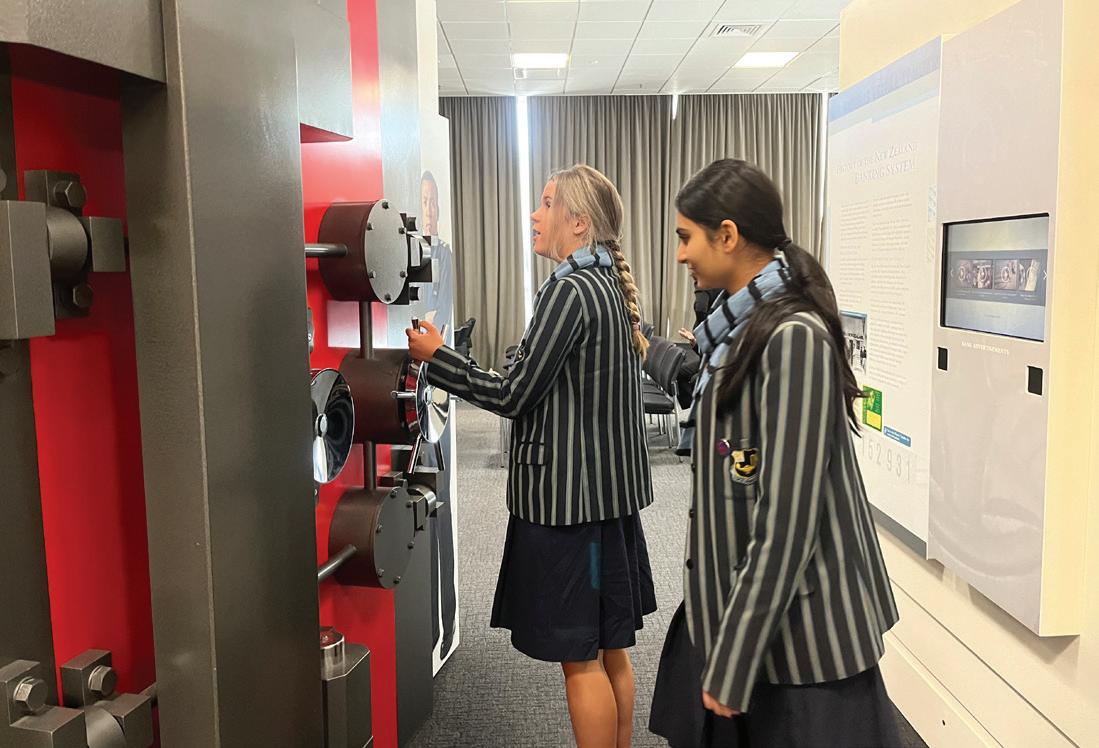
Course Description
Students well set up a new company undertaking many areas of business such as market research, creating a business plan, carry out, review and refine a communitybased business activity with a wellbeing focus.
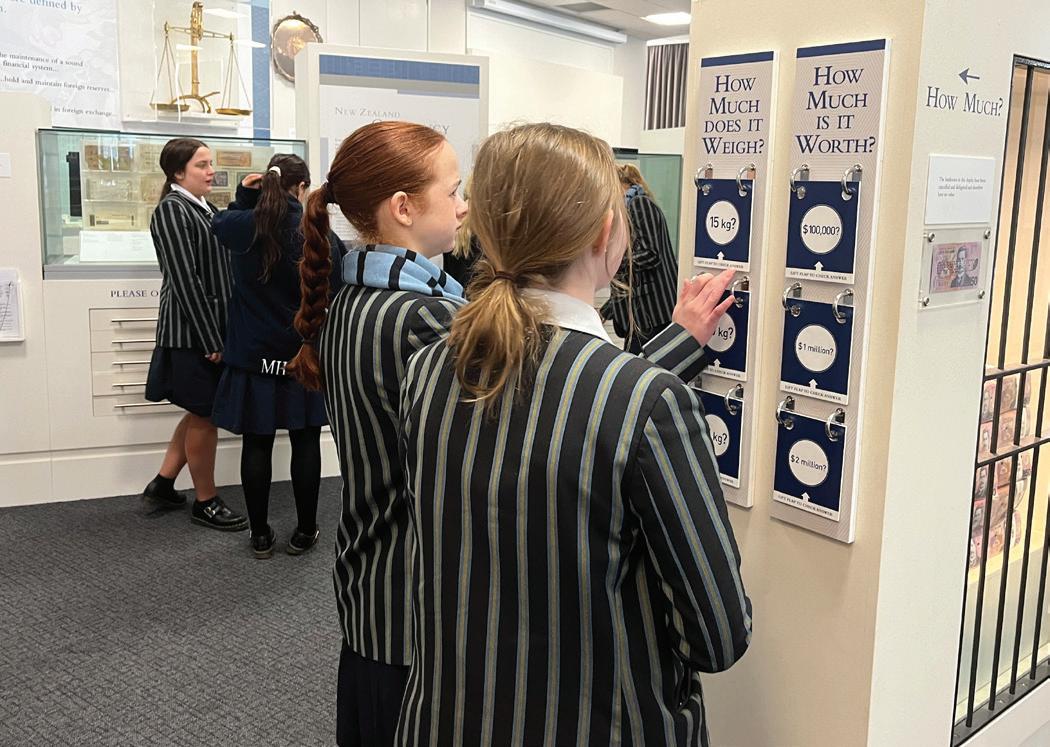
ASSESSMENT
They will then operate a business over two business cycles. These will be internally assessed.
In the external, students will demonstrate, examine and evaluate how an organisation’s financial viability is affected by a given event.
Contributions
ϐ $45 to register for the Young Enterprise course and set up costs for new business (varied between $20-$60).
Live. Learn. Lead | Queen Margaret College 11
The achievement standards listed for each subject have been chosen carefully, but are subject to change.
Achievement Standard Title Standard Number Version Credits Int/ Ext Conduct market research for a new or existing product AS90846 (2.4 2 3 Internal Carry out, review and refine a business activity within a community context with guidance AS90848 (2.6) 2 9 External Demonstrate understanding of how an organisation's financial viability is affected by an event AS92031 (1.4) 2 5 External (Examination)
ELEVATE YEAR 11
DIGITAL TECHNOLOGY
Recommended Previous Study
Completion of Year 10 Product and Digital Design or approval by Deputy Principal – Teaching and Learning.
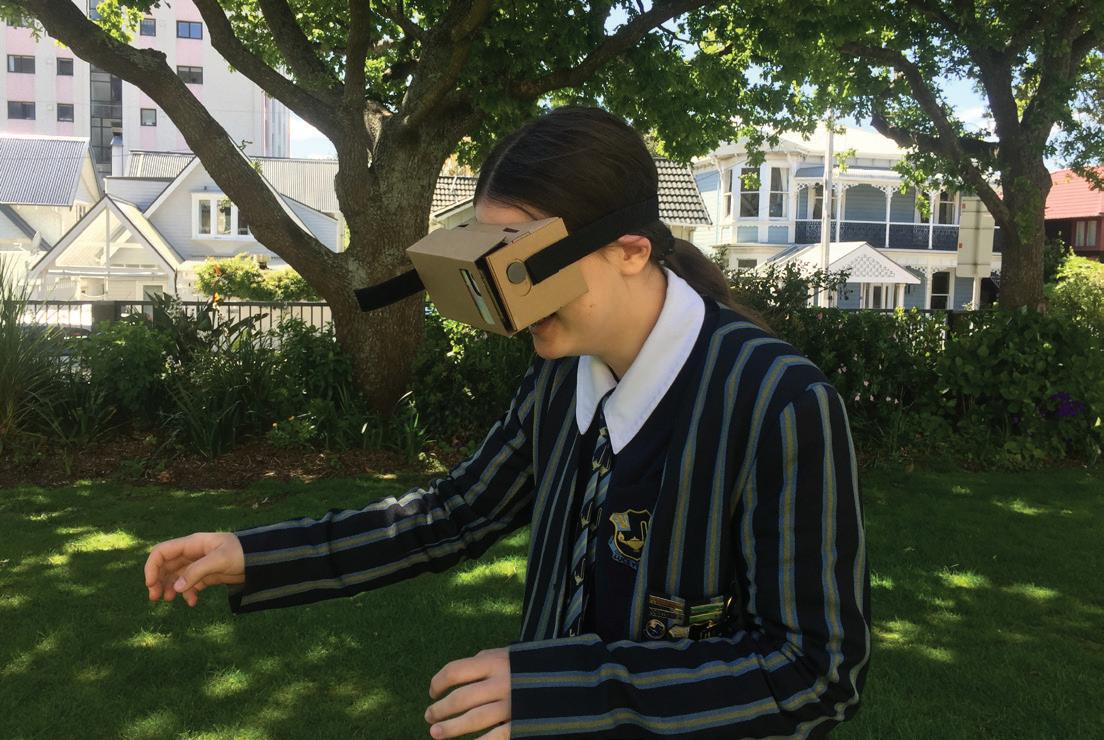
Course Description
Studying Digital Technology will open a huge variety of opportunities and career pathways for students in this ever-expanding environment. Ākonga will learn about computer programming, digital media, and design thinking to address a real-world opportunity. Through a series of steps, they will investigate, explore, develop, debug and model their prototype.
ASSESSMENT
PYTHON is used as the programming language, website design and development uses HTML/CSS/JavaScript, and for documenting the design and development process of digital outcomes students use a range of MS Office applications and image editing software.

Contributions
ϐ There is no fee for this course.
Students will be required to complete a report based on a portfolio they develop while designing a digital technologies outcome. The portfolio is not submitted for assessment.
12 ELEVATE YEAR 11 SELECTION HANDBOOK | 2024 – 2025
The achievement standards listed for each subject have been chosen carefully, but are subject to change.
Achievement Standard Title Standard Number Version Credits Int/ Ext (*) Create a computer program AS92004 (1.1) 1 5 Internal Develop a digital technologies outcome AS92005 (1.2) 1 5 Internal Design a digital technologies outcome AS92007 (1.4) 1 5 *External
DRAMA
Recommended Previous Study
Completion of Year 10 Drama or approval by Deputy Principal – Learning and Teaching.
Course Description
A practical performance-based course, Level 1 Drama explores theatre form, drama techniques, elements, conventions, and theatre technologies. The course is an opportunity for students to develop their imaginations,
ASSESSMENT
creativity and thinking skills as a key component to learning through drama performance. Students will attend live theatre throughout the year to develop their understanding and knowledge of theatre in New Zealand.

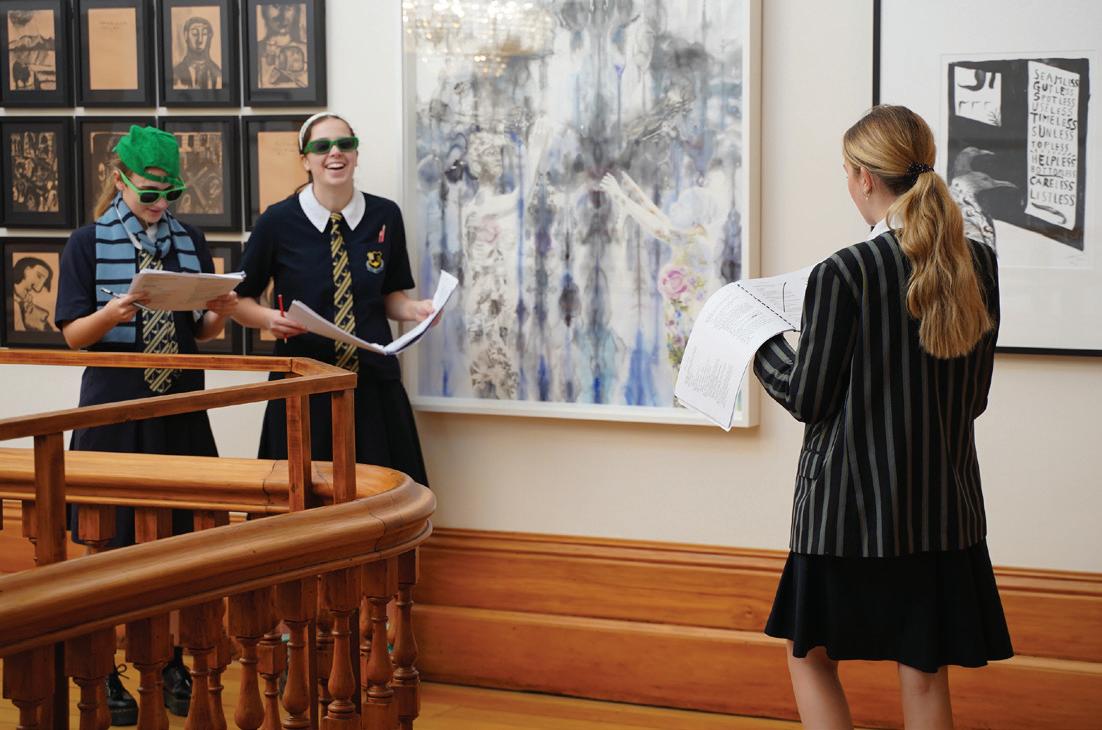
Contributions
ϐ Parents will be notified of costs of attending live Theatre performances. These will be charged to school accounts.
Live. Learn. Lead | Queen Margaret College 13
The achievement standards listed for each subject have been chosen carefully, but are subject to change.
Achievement Standard Title Standard Number Version Credits Int/ Ext (*) Participate in creative strategies to devise a Drama AS91941 (1.2) 2 5 Internal Use Drama Techniques to perform a scripted role for an audience (Submitted Externally) AS91942 (1.3) 2 5 External (Video of performance) Respond to a Drama Performance AS91943 (1.4) 2 5 External (Examination)
ELEVATE YEAR 11
ENGLISH (Compulsory)
Recommended Previous Study
Completion of Year 10 English or approval by Deputy Principal – Learning and Teaching
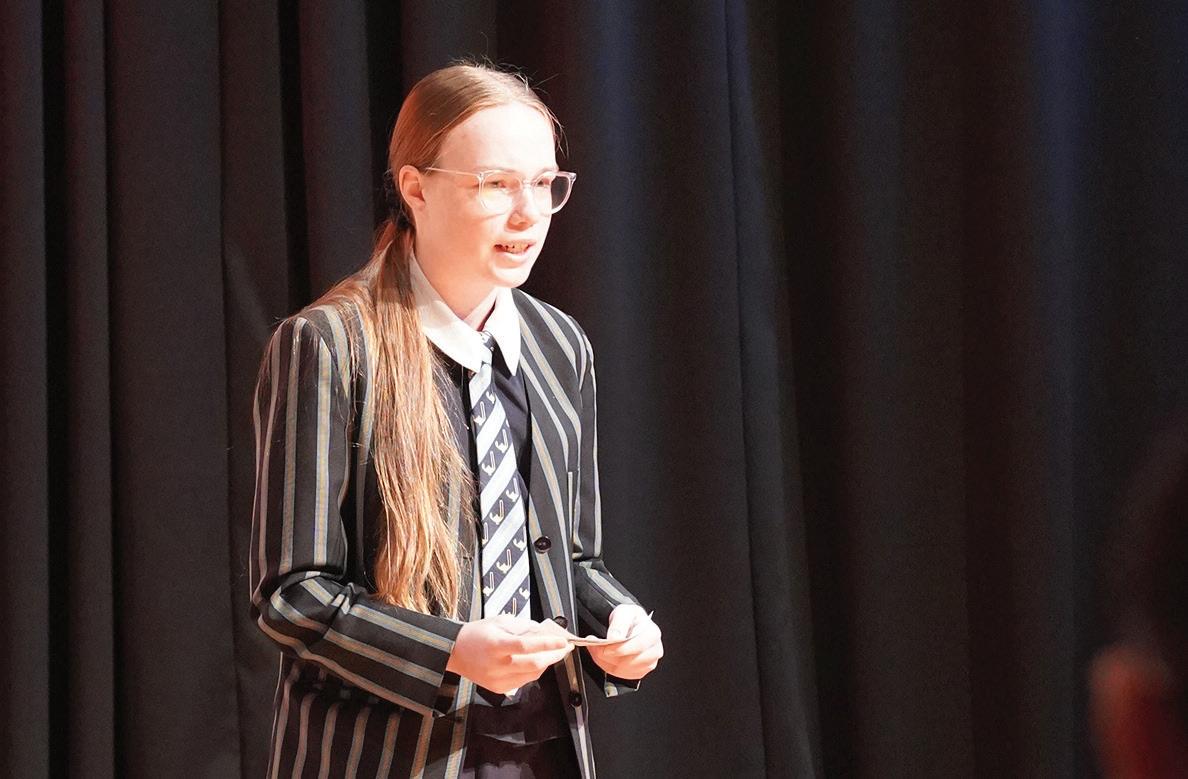
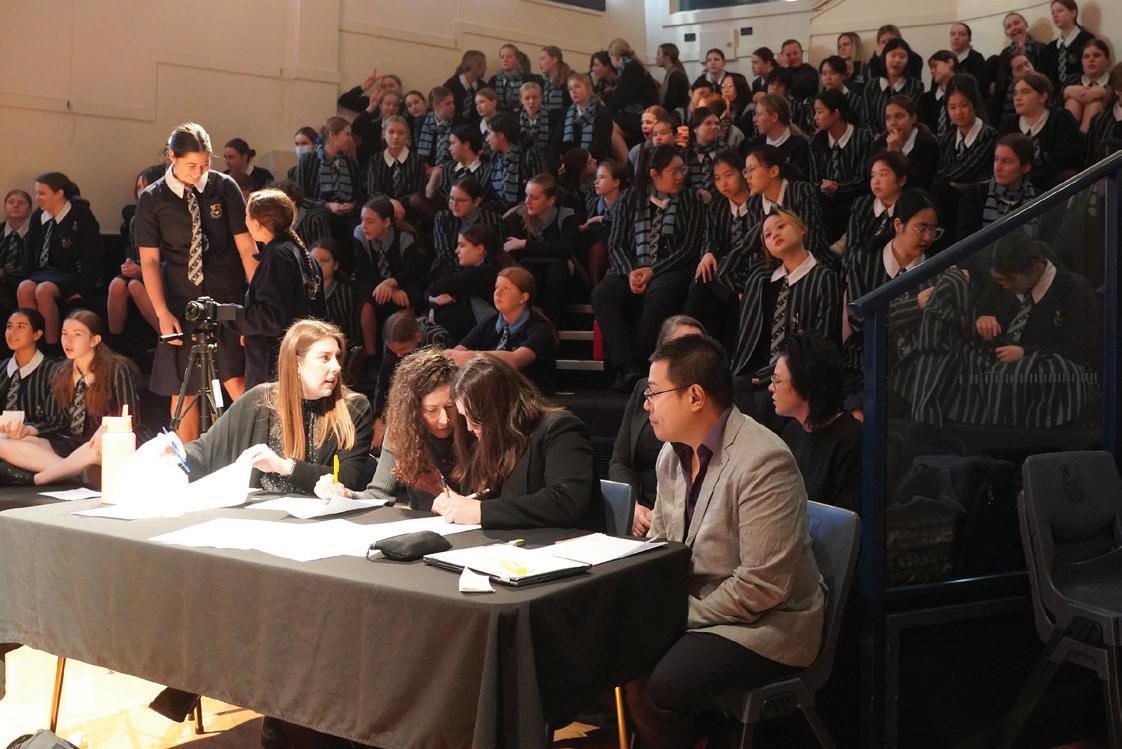
Course Description
The four terms of the Level 1 English course focuses on identifying and understanding language use in particular contexts such as film, literature, and media. Students will show a developed awareness of how aspects of te ao Māori are woven through texts by reading and viewing a range
ASSESSMENT
of Aotearoa and world literature. By the end of the course, students will be able to describe and explain the literary qualities of increasingly complex texts using examples from the text. Term 1 Media and Film contexts, Term 2 World Literature study, Term 3 Writing Portfolio and Term 4 NZ language and Literature examination preparation.
Contributions
ϐ Written text charge tbc approximately $20
14 ELEVATE YEAR 11 SELECTION HANDBOOK | 2024 – 2025
The achievement standards listed for each subject have been chosen carefully, but are subject to change.
Achievement Standard Title Standard Number Version Credits Int/ Ext Demonstrate understanding of specific aspects of studied text AS91925 1.2 3 5 Internal Develop ideas in writing using stylistic and written conventions AS91926 1.3 3 5 External (Portfolio) Demonstrate understanding of significant aspects of unfamiliar texts AS91927 1.4 3 5 External (Examination)
FRENCH

Recommended Previous Study
Completion of Year 10 French or approval by Deputy Principal – Learning and Teaching

Course Description
In this course, students will develop communicative and interactive abilities in French. The course will cover the four strands of language learning: reading, writing, listening, and speaking, while building cultural competencies and global awareness. The study of French will help students to develop an appreciation of diverse backgrounds, experiences, and perspectives through learning about other cultures and reflecting on their own identity and culture. The topics covered in this course are:
ϐ Me and my people – Who am I and who are the people around me?
ϐ My social life and celebrations – How is my life enriched by festivals and celebrations?
ϐ My habits and routines – How do cultural practices contribute to daily routines?
ϐ My place in the world and my home - What does my world and the world of others look like?
Contributions
ϐ Vocabulary and grammar booklet approximately $15 tbc
Live. Learn. Lead | Queen Margaret College 15
The achievement standards listed for each subject have been chosen carefully, but are subject to change.
Achievement Standard Title Standard Number Version Credits Int/ Ext Interact in spoken French to share and respond to information, ideas and opinions. AS91964 (1.1) 2 5 Internal Demonstrate understanding of written French related to everyday contexts. AS91966 (1.3) 2 5 External Demonstrate understanding of spoken French related to everyday contexts. AS91967 (1.4) 2 5 External
ASSESSMENT
ELEVATE YEAR 11
GEOGRAPHY
Recommended Previous Study
Completion of Year 10 Humanities or approval by Deputy Principal – Learning and Teaching.
Course Description
Geography explores the relationships and interactions between people and environments. Students develop research skills and learn to interpret maps, graphs and visual images. Identifying viewpoints and understanding

ASSESSMENT
Demonstrate understanding of the spatial distribution of phenomena and its impact within te taiao.
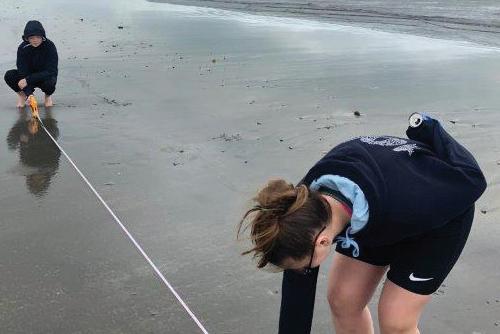
different perspectives are also key skills. During this course, geographic issues are investigated with particular focus on the impacts on people and environments. Extreme natural events are also studied with topics such as earthquakes as a focus.
Contributions
ϐ Level 1 Skills workbook (approx $30) -to be charged to account.
ϐ Potential costs associated with trips –to be advised once finalised.
Demonstrate understanding of how natural processes operate with the te taiao.
16 ELEVATE YEAR 11 SELECTION HANDBOOK | 2024 – 2025
The achievement standards listed for each subject have been chosen carefully, but are subject to change.
Achievement Standard Title Standard Number Version Credits Int/ Ext
AS91932 (1.1) 1 5 Internal (Assignment)
AS91933 (1.2) 1 5 Internal (Assignment)
AS91934 (1.3) 1 5 External (Examination)
Explore te taiao using data.
HISTORY
Recommended Previous Study
Completion of Year 10 Humanities or approval by Deputy Principal – Learning and Teaching.

Course Description
Through studying History, students develop many skills that are necessary for the modern working environment. Information literacy is one of these key skills. Research is a major component of History, where students learn to critique their sources of information and cross-reference

ASSESSMENT
Carry out an investigation of an historical event, or place, of significance to New Zealanders.
Demonstrate understanding of an historical event, or place, of significance to New Zealanders.
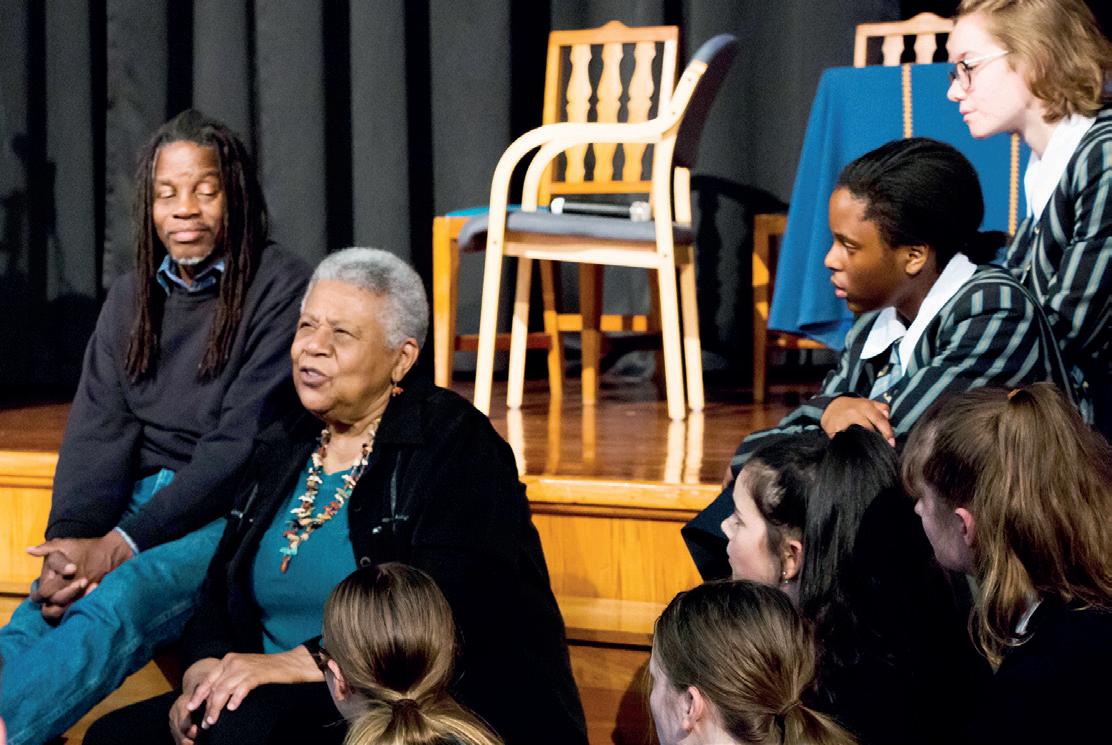
Interpret sources of an historical event of significance to New Zealanders.
facts. They also learn to identify opinion and gain an understanding of differing perspectives, hence developing empathy. Communication skills are also important. Students gain the ability to present information in a logical order and in a variety of settings. The main theme of the Level 1 course is social change. Topics we will be looking at include the Bolton Street Cemetery as a place of significance, how disease, such as the Black Plague can instigate change, and the impact of social and political change on South Africa.
Live. Learn. Lead | Queen Margaret College 17
The achievement standards listed for each subject have been chosen carefully, but are subject to change.
Achievement Standard Title Standard Number Version Credits Int/ Ext
Contributions ϐ Field Trip Costs
AS92024 (1.1) 2 5 Internal (Research)
AS92025 (1.2) 2 5 Internal (Written Presentation)
AS92027 (1.4) 2 5 External
ELEVATE YEAR 11
JAPANESE
Recommended Previous Study
Completion of Year 10 Japanese or approval by Deputy Principal – Learning and Teaching.
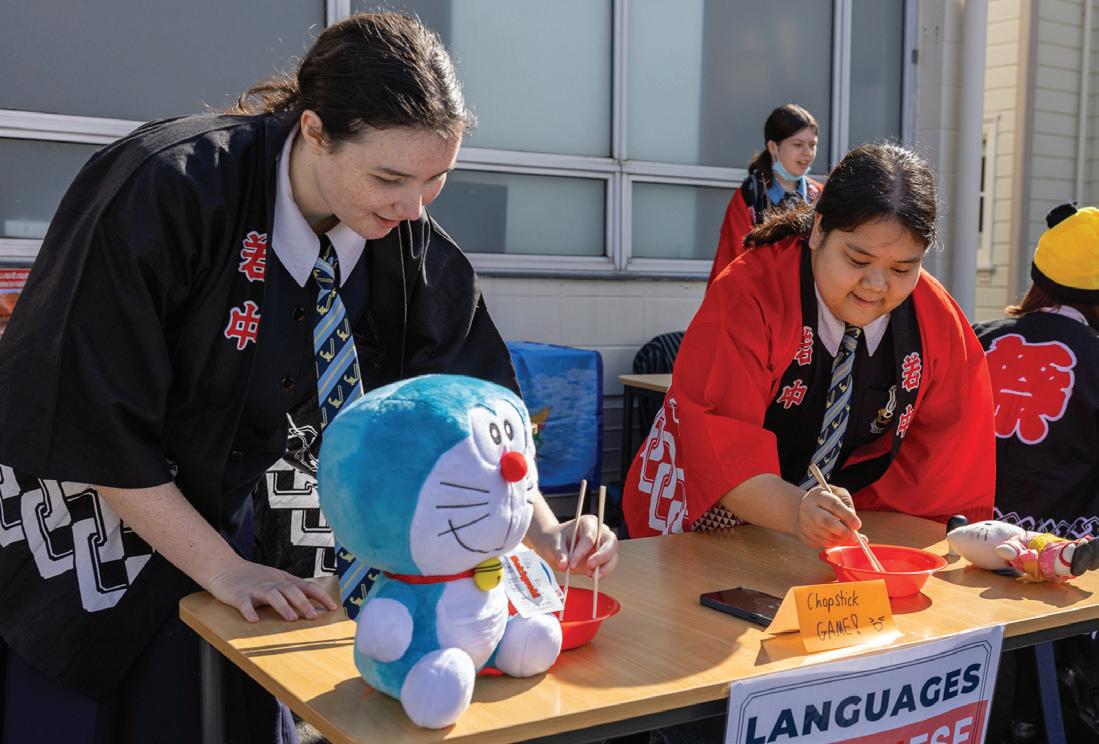
Course Description
In this course, students will develop communicative and interactive abilities in Japanese. The course will cover the four strands of language learning: reading, writing, listening, and speaking, while building cultural competencies and global awareness. The study of Japanese will help students to develop an appreciation of diverse

backgrounds, experiences, and perspectives through learning about other cultures and reflecting on their own identity and culture. The topics covered in this course are Hauora (Wellbeing), Whakawhanaungatanga (Family), Kura (School) and Holidays.
Contributions
ϐ Vocabulary and grammar book approximately $10 tbc.
18 ELEVATE YEAR 11 SELECTION HANDBOOK | 2024 – 2025
The achievement standards listed for each subject have been chosen carefully, but are subject to change.
Achievement Standard Title Standard Number Version Credits Int/ Ext Communicate in Japanese for a chosen purpose AS91957 (1.2) 2 5 Internal (Assignment) Demonstrate understanding of written Japanese related to everyday contexts AS91958 (1.3) 2 5 External Demonstrate understanding of spoken Japanese related to everyday contexts AS91959 (1.4) 2 5 External ASSESSMENT
MATERIALS TECHNOLOGY
Recommended Previous Study
Completion of Year 10 Materials Technology or approval by Deputy Principal – Teaching and Learning.
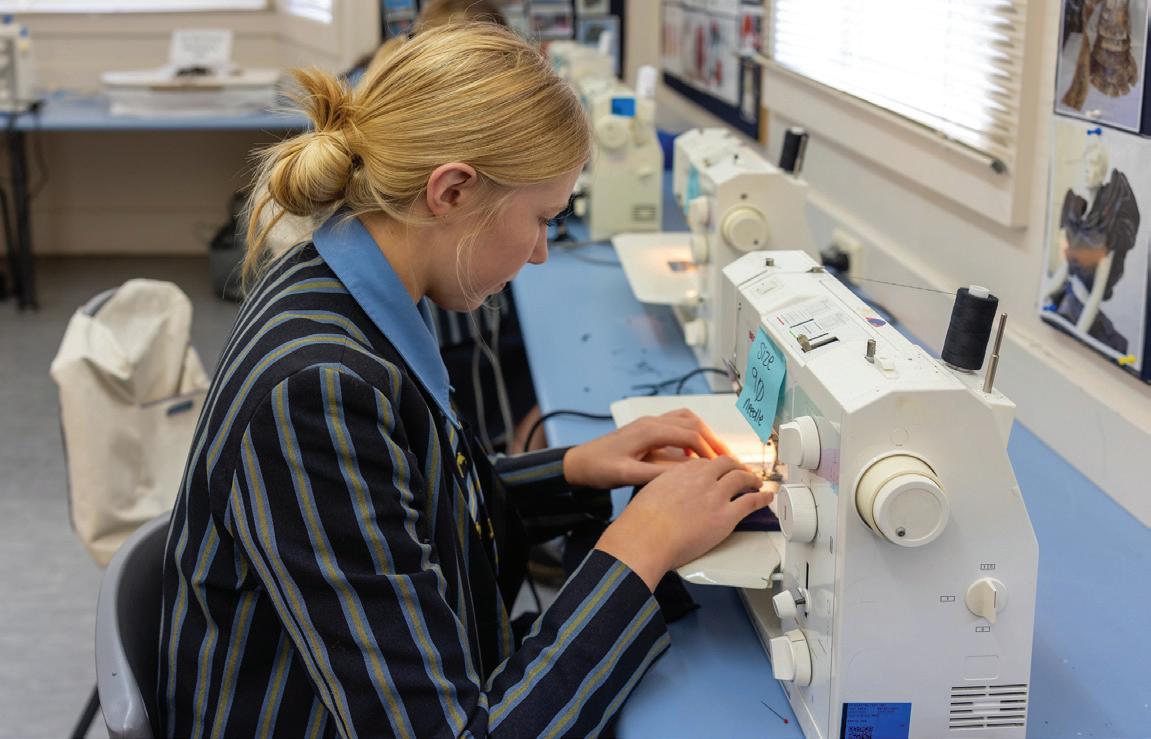
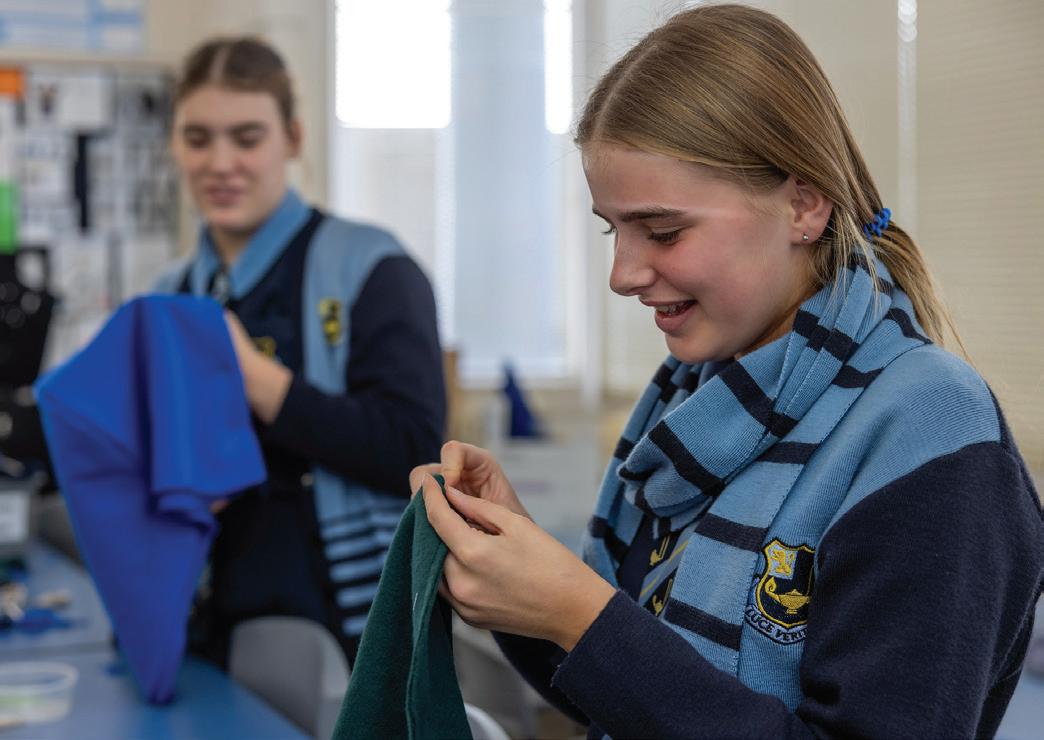
Course Description
Ākonga will work on two units of work over the course of the year, exploring and experimenting with a variety of materials and construction processes. This course provides opportunities for ākonga to use their imagination with materials and bring ingenuity to what they can do with them. Ākonga will develop authentic outcomes that meet an identified need or opportunity for a person, whānau or community. Each unit of work will require ākonga to carry out context investigation research, design modelling, development work, and the construction of a practical outcome.
Topic one: Ākonga will identify a storage need and develop a solution. Ākonga outcomes could be (but are not limited to) a bag, carrier, or storage product.
Topic two: Creative use of materials and items that can be upcycled into something new and better. Upcycling can be seen as an act of Kaitiakitanga. Ākonga will experiment with different materials and develop an outcome to meet an identified need. Ākonga outcomes could be (but are not limited to) a garment, adornment, or product.
Contribution
ϐ There is a $50+gst annual consumables fee for Materials Technology. This will be charged to your school account. Students will work on individual projects that will require them to purchase some of their own material resources. Topic specific resource details will be given to students at the start of each topic.
ϐ There may be planned trips throughout the year which are necessary to develop knowledge for the assessment tasks in the unit topics. You will be notified of any costs associated with any trips (travel, entry fees). Costs incurred will be charged to your school account.
Live. Learn. Lead | Queen Margaret College 19
The achievement standards listed for each subject have been chosen carefully, but are subject to change.
Achievement Standard Title Standard Number Version Credits Int/ Ext Develop a Materials and Processing Technology outcome for an authentic context. AS92012 1.1 2 6 Internal (Portfolio and practical outcome) Develop a Materials and Processing Technology outcome by transforming, manipulating or combining different materials. AS92013 1.2 2 6 Internal (Portfolio and practical outcome) Demonstrate understanding of materials and techniques for a feasible Materials and Processing Technology outcome AS92015 1.4 2 4 External (Examination)
ASSESSMENT
ELEVATE YEAR 11
MATHEMATICS (Statistics) (Compulsory)
Recommended Previous Study
Completion of Year 10 Mathematics or approval by Deputy Principal – Learning and Teaching.
Course Description
This course requires students to think statistically and mathematically in a range of contexts, to interpret data and develop solutions for real-life problems. Topics
include statistics, number, measurement, geometry, and probability for all students. The course is designed to develop mathematical knowledge, problem solving strategies and statistical thinking in preparation for NCEA Statistics in Year 12.


Contributions
ϐ Course cost of approximately $35 (TBC), for topic workbooks and NZGrapher subscriptions.
20 ELEVATE YEAR 11 SELECTION HANDBOOK | 2024 – 2025
The achievement standards listed for each subject have been chosen carefully, but are subject to change.
Assessment Achievement Standard Title Standard Number Version Credits Int/ Ext Explore data using a statistical enquiry cycle AS91944 Mathematics and Statistics 1.1 2 5 Internal Use mathematical methods to explore problems that relate to life in Aotearoa New Zealand or the Pacific AS91945 Mathematics and Statistics 1.2 2 5 Internal Interpret and apply mathematical and statistical information in context AS91946 Mathematics and Statistics 1.3 2 5 External
MATHEMATICS (Extended) (Compulsory)
Recommended Previous Study
Completion of Year 10 Mathematics or approval by Deputy Principal – Learning and Teaching.
Course Description
This course requires students to think statistically and mathematically in a range of contexts, to interpret data and develop solutions for both real-life and abstract problems.
Topics include statistics, number, measurement, geometry, algebra and graphs for all students. The course is designed to extend mathematical knowledge and understanding in preparation for either NCEA or IB Diploma courses in Year 12.
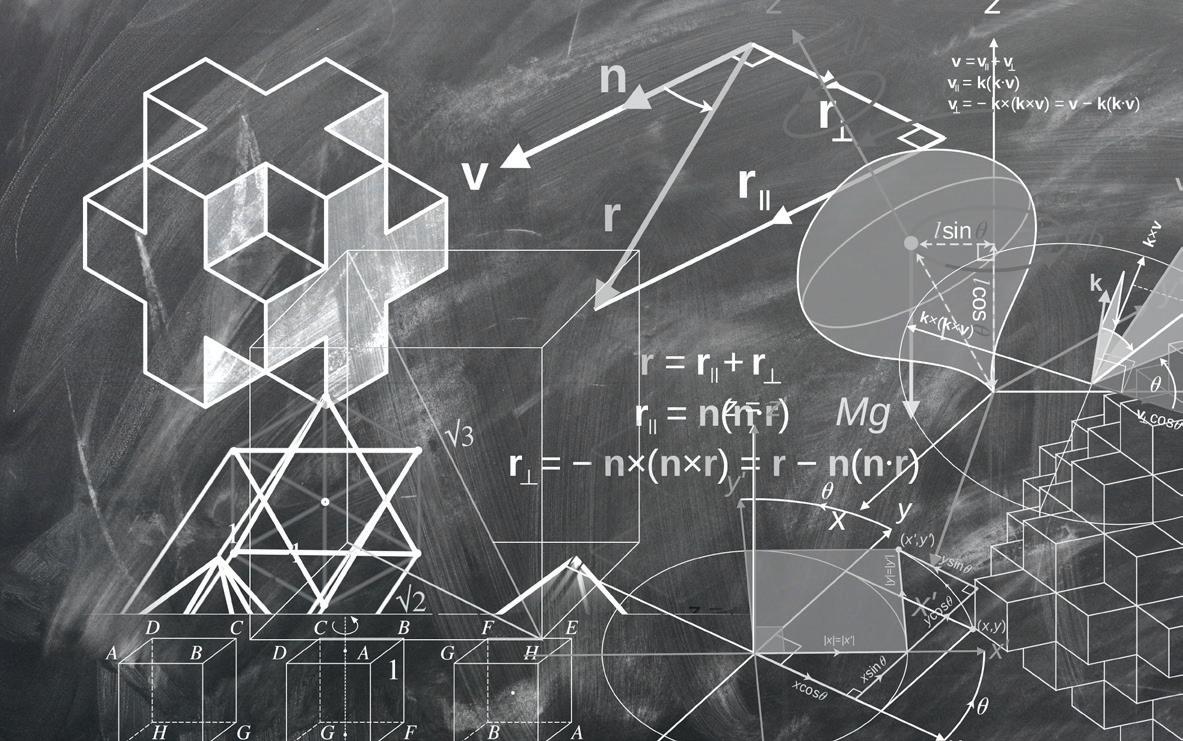

Contributions
ϐ Course cost of approximately $35 (TBC), for topic workbooks and NZGrapher subscriptions.
Live. Learn. Lead | Queen Margaret College 21
The achievement standards listed for each subject have been chosen carefully, but are subject to change.
Assessment Achievement Standard Title Standard Number Version Credits Int/ Ext Explore data using a statistical enquiry cycle AS91944 Mathematics and Statistics 1.11.1 2 5 Internal Use mathematical methods to explore problems that relate to life in Aotearoa New Zealand or the Pacific AS91945 Mathematics and Statistics 1.2 1.2 2 5 Internal Demonstrate mathematical reasoning AS91947 Mathematics and Statistics 1.41.3 2 5 External
ELEVATE YEAR 11
MUSIC
Recommended Previous Study
Completion of Year 10 Music or approval by Deputy Principal – Learning and Teaching.
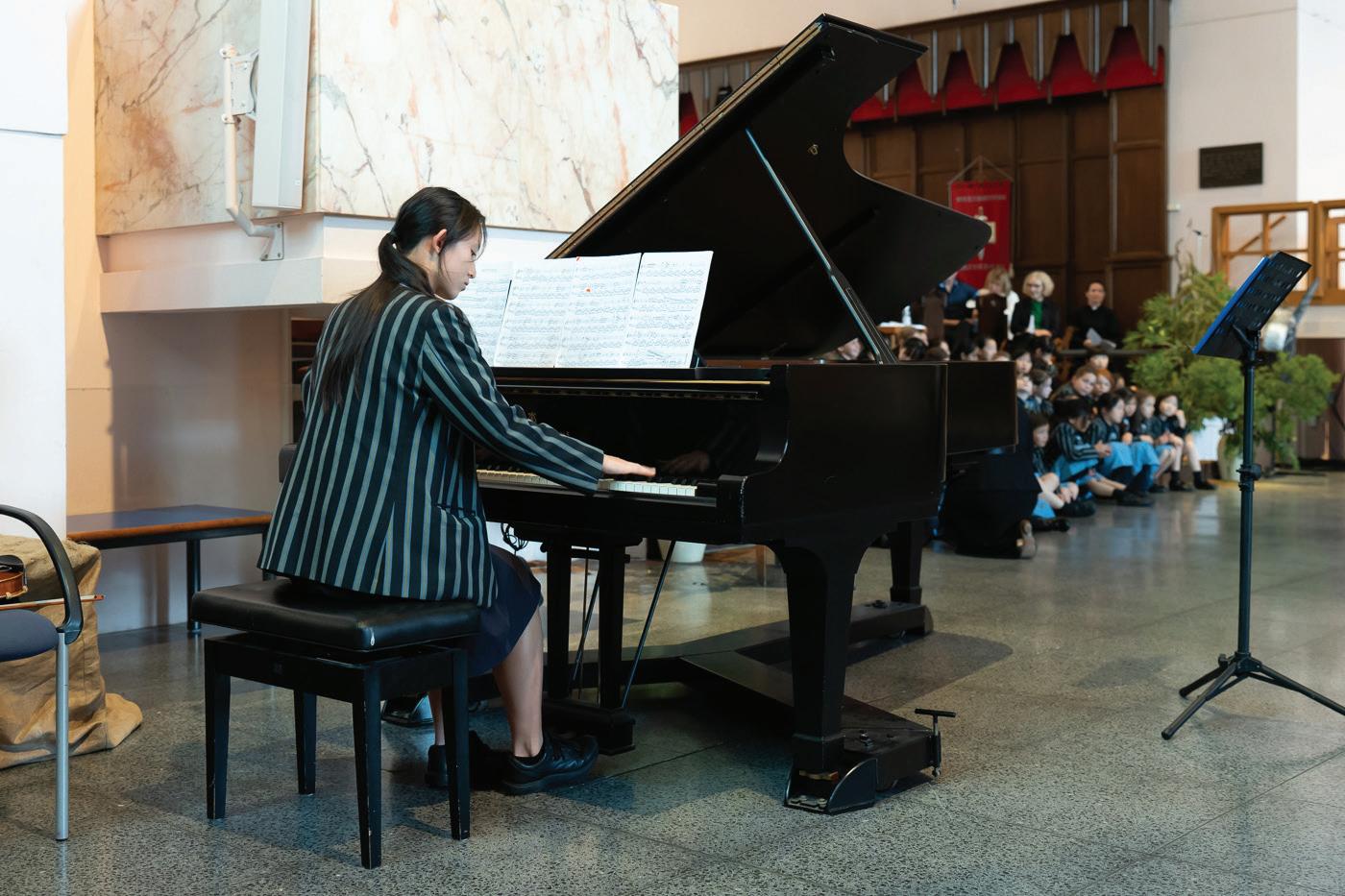
Course Description
The Year 11 Music course is designed to give students practical experience in understanding musical contexts, performance styles and compositional techniques, based on a foundation of a clear grasp of the musical elements and features of a wide variety of musical genres, including

Mātauranga Māori music. In consultation with their teacher, students will choose three of the Achievement Standards listed which will comprise the set course for Music. Students will also select music in a range of styles to explore, experiment with and present in creative ways. .
Contributions
ϐ None
22 ELEVATE YEAR 11 SELECTION HANDBOOK | 2024 – 2025
The achievement standards listed for each subject have been chosen carefully, but are subject to change.
Achievement Standard Title Standard Number Version Credits Int/ Ext Use Music skills in a Music style AS91948 (1.1)Number 2 5 Internal Demonstrate Performance Skills AS91949 (1.2) 1 5 Internal Demonstrate Understanding of Music in relation to Contexts AS91950 (1.3) 1 5 External (Portfolio) Shape Musical Ideas to create an original Composition AS91951 (1.4) 1 5 External (Portfolio) Assessment
PHYSICAL EDUCATION
Recommended Previous Study
Completion of Year 10 Physical Education is an advantage but not compulsory or approval by Deputy Principal –Learning and Teaching.
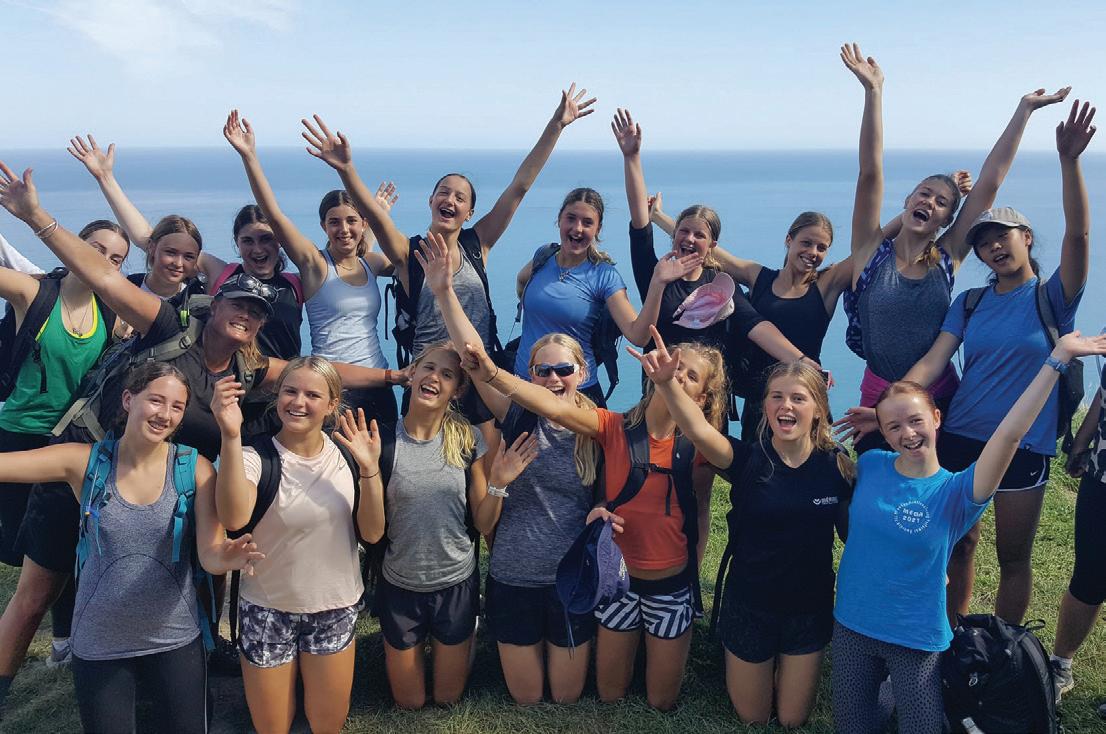
Course Description
In this course, we delve into biophysical principles to understand how the human body functions during physical activity. We explore the intricate interplay between the skeletal and muscular systems, gaining insights into how they work together to facilitate movement. Biomechanics is integral as we examine how these principles can be applied to enhance sporting performance. Additionally, we explore into exercise science and physiology, unraveling how these fields enable active participation in physical activity.
Assessment
Societal issues in sport and physical activity are also explored, shedding light on various factors that shape people's perspectives and engagement in movement. Students will investigate the promotion of kotahitanga (unity) in physical activity through the application of effective strategies. By participating in diverse activities such as Fergs, CityFitness classes, squash, yoga, and more, we analyze the factors that influence participation and examine their impact on Hauora (well-being).
Moreover, this course aims to broaden students' exposure to a wide range of sports and physical activities. Through engaging experiences, students have the opportunity to actively participate in and develop skills in Ki-o-Rahi, basketball, and volleyball, fostering a well-rounded understanding of different sporting disciplines.
Contributions
ϐ As part of Achievement Standard 92018 and 92017, students will participate in a variety of activities such as: Fergs, CityFitness, yoga, squash and outdoor education. These activities will be charged to parents’ accounts as they take place.
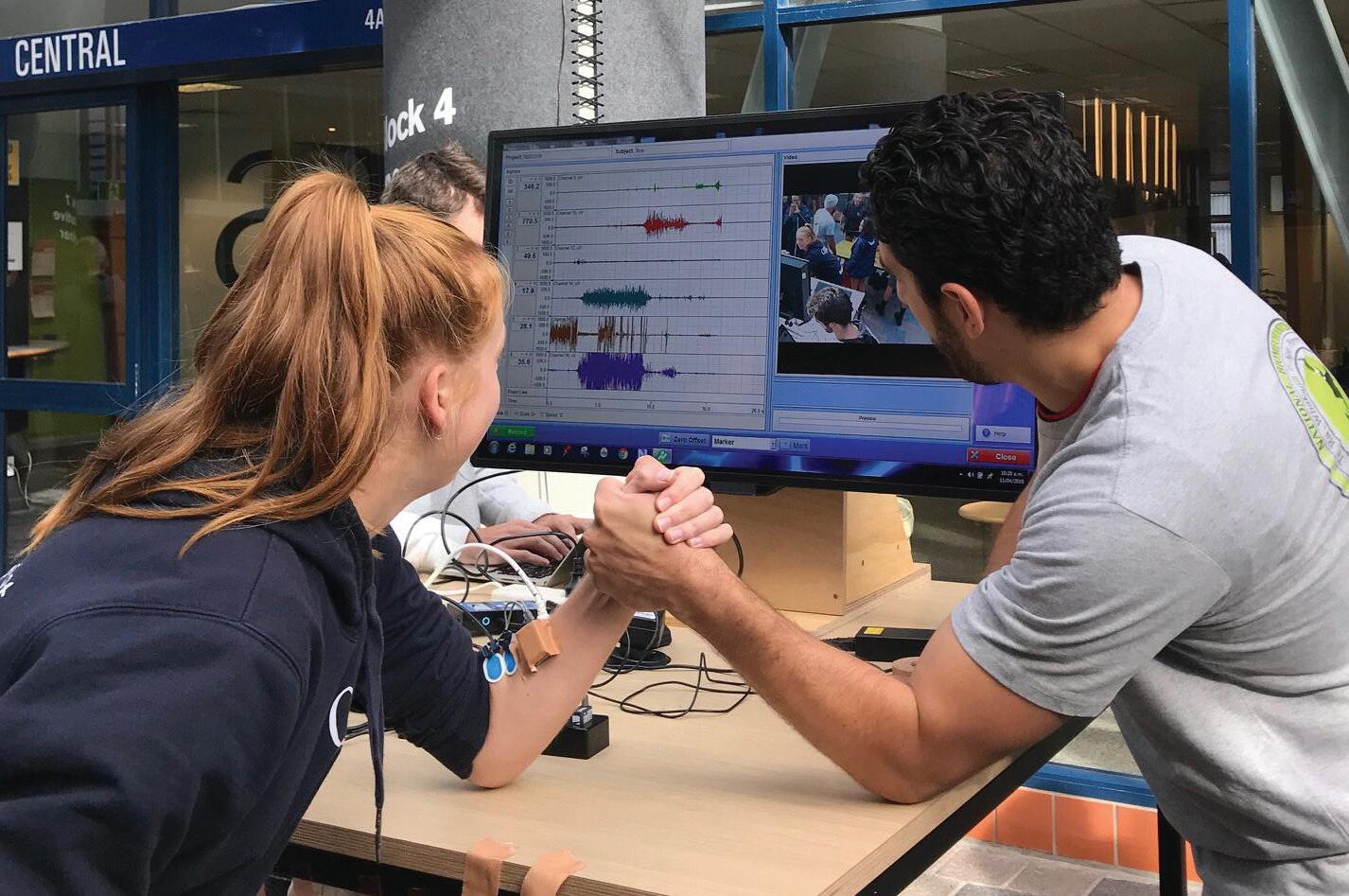
Live. Learn. Lead | Queen Margaret College 23
Achievement Standard Title Standard Number Version Credits Int/ Ext Playball AS92016, 1.1 1 5 Internal Kotahitanga: Unity in Action AS92017, 1.2 1 5 Internal Balance your body, Balance your mind! AS92018, 1.3 1 5 External (Portfolio)
The achievement standards listed for each subject have been chosen carefully, but are subject to change.
ELEVATE YEAR 11
RELIGIOUS STUDIES (Compulsory)
Recommended Previous Study
No previous study required.
Course Description
All students take one lesson of Religious Studies a week as part of their Y11 studies. Students are introduced to the study of a range of religious communities in Aotearoa New Zealand today. This includes an exploration of how our social, geographical, political, and other factors have uniquely shaped these community identities in this country. Students will then choose and describe a community that shares religious or spiritual beliefs, evaluating the significant factors in the development of the
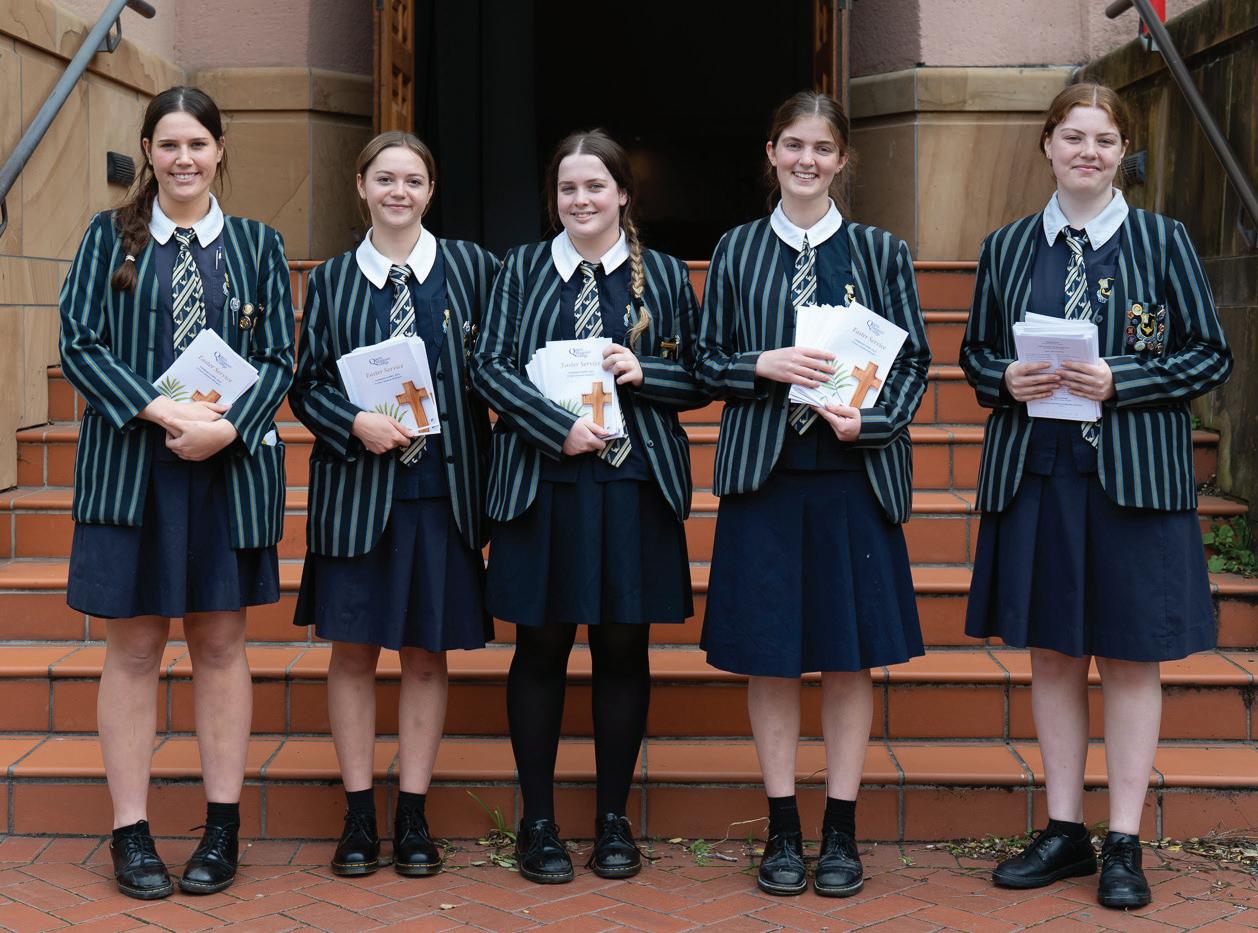

Assessment
Demonstrate understanding of the development of a community that shares religious or spiritual beliefs.
community, with reference to the wider social context.
Contributions
ϐ None
24 ELEVATE YEAR 11 SELECTION HANDBOOK | 2024 – 2025
The achievement standards listed for each subject have been chosen carefully, but are subject to change.
Achievement Standard Title Standard Number Version Credits Int/ Ext
AS91916 1.1 3 5 Internal (Written Report)
SPANISH Recommended Previous Study
Completion of Year 10 Spanish or approval by Deputy Principal – Learning and Teaching.
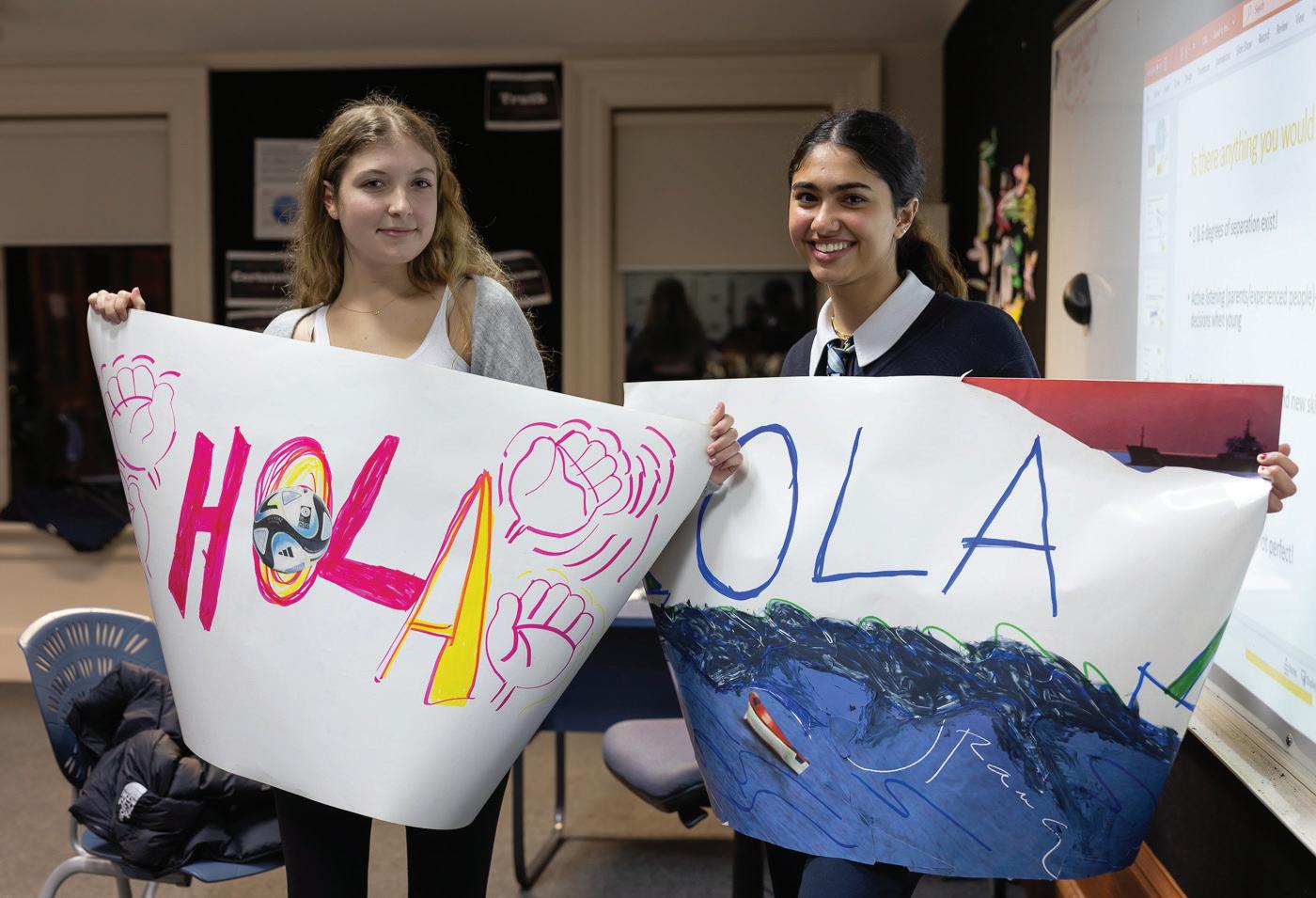
Course Description
In this course, students will develop communicative and interactive abilities in Spanish. The course will cover the four strands of language learning, reading, writing, listening, and speaking while developing cultural competencies and global awareness. The study of Spanish will help students to develop an appreciation of diverse backgrounds, experiences, and perspectives through learning about other cultures and reflecting on their own identity and culture. The topics covered in this course are:

ϐ Family, friends, and relationships
ϐ School
ϐ Vacations
ϐ The place I live in
ϐ Health and wellbeing
ϐ Future plans
Contributions
ϐ $20 Grammar and vocabulary workbook .
Live. Learn. Lead | Queen Margaret College 25
The achievement standards listed for each subject have been chosen carefully, but are subject to change.
Achievement Standard Title Standard Number Version Credits Int/ Ext Interact in spoken Spanish to share and respond to information, ideas, and opinions AS91972 (1.1) 2 5 Internal (Portfolio) Show understanding of written Spanish related to everyday contexts AS91974 (1.3) 2 5 External Demonstrate understanding of spoken Spanish related to everyday contexts AS91975 (1.4) 2 5 External Assessment
ELEVATE YEAR 11
TE REO MĀORI
Recommended Previous Study
Completion of Year 10 te reo Māori or approval by Deputy Principal – Learning and Teaching.
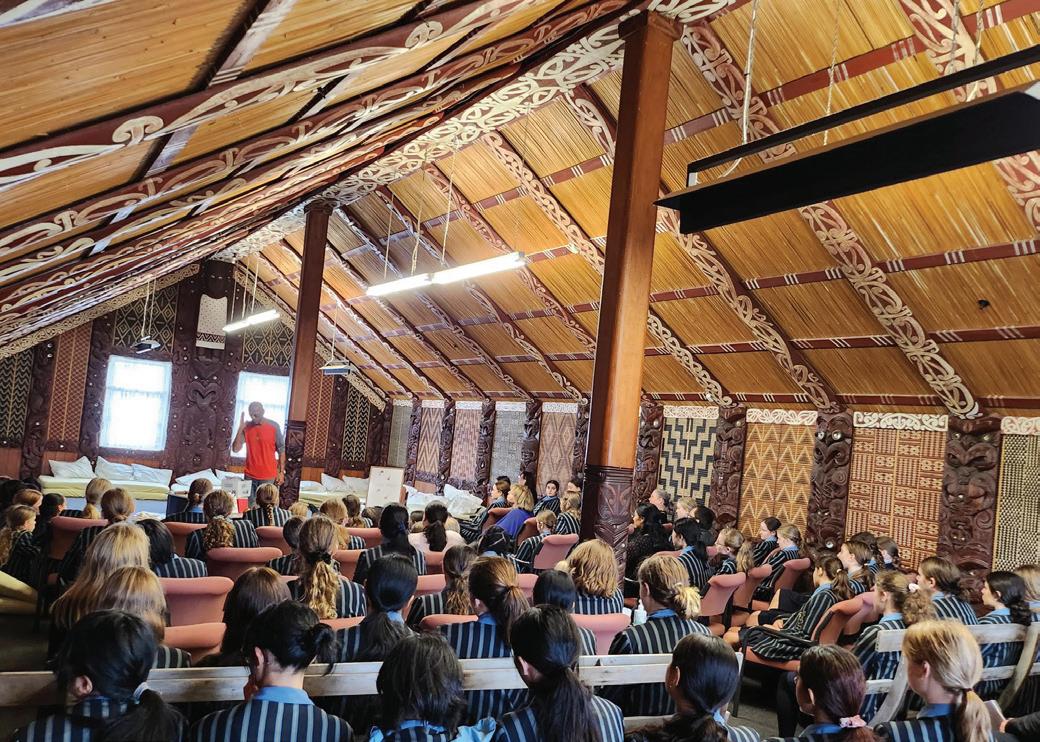
Course description
In this course, students will develop communicative and interactive skills in Te Reo Māori. The students will be immersed in the four language skills including reading, writing, listening, and speaking, with a strong focus on the latter. Students will build cultural competencies and language awareness through multiple contexts including school, home, hobbies and events. The achievement objectives covered in this course are:
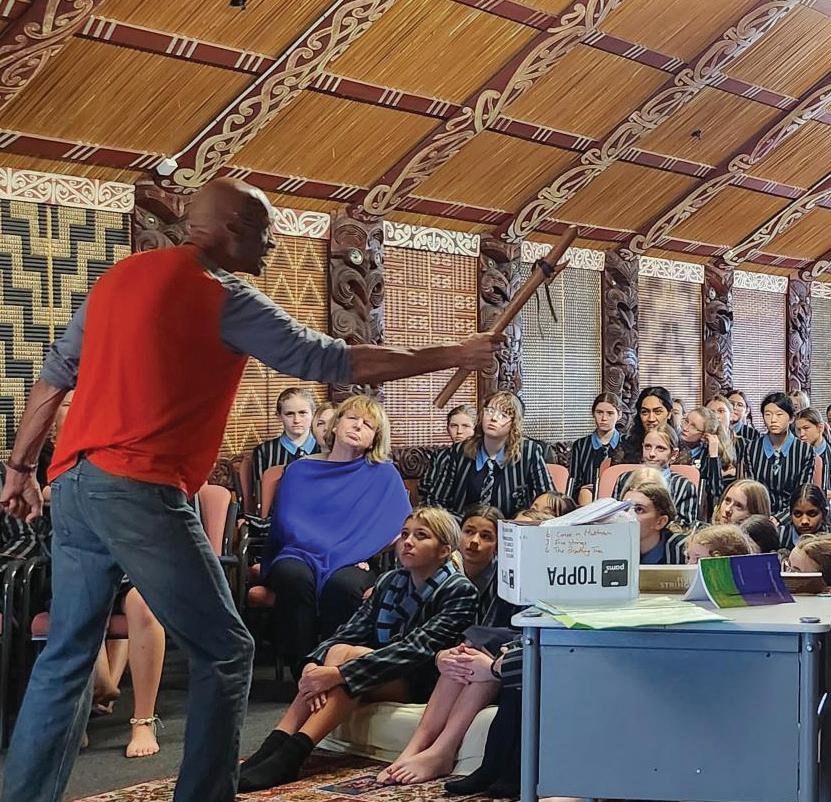
Contributions
ϐ We are likely to have shared kai fortnightly and practice conversational skills in an authentic context. Therefore, they will be expected to contribute with bringing in some kai from home to share with everyone in the class.
26 ELEVATE YEAR 11 SELECTION HANDBOOK | 2024 – 2025
The achievement standards listed for each subject have been chosen carefully, but are subject to change.
Achievement Standard Title Standard Number Version Credits Int/ Ext Te whakapuaki whakairo i runga i te āta rere o te reo AS92093 (1.2) 1 4 Internal (Portfolio) Te tautohu i ētahi mātāpono Māori kei roto i te reo AS92094 (1.3) 1 4 External Te whakapuaki whakairo i runga i te tika haere o te reo AS92096 (1.4) 1 6 External Assessment
VISUAL ARTS
Recommended Previous Study
Completion of Year 10 Visual Arts or approval by Deputy Principal – Learning and Teaching.


Course Description
Te toi whakairo, ka ihiihi, ka wehiwehi, ka aweawe te ao katoa. Artistic excellence makes the world sit up in wonder. Level 1 Art is a practical course where students are taught art-making skills in drawing, painting, printmaking and photography. Emphasis is on developing and challenging the creative thinking process and students are encouraged to generate a range of responses to visual and conceptual problems. The work of a wide variety of artists is used to inspire students and help them develop their own personal approach. The course covers four achievement standards
and provides students with necessary visual and technical knowledge that will enable them to pursue further study in the specialist Art disciplines of IBDP Visual Arts and NCEA Visual Arts, Design or Photography.
Contributions
ϐ There is a consumables fee of $140, which will be charged to student’s school account. Please note that this will cover both the student’s art kit and materials.
ϐ Students have the option to purchase the Adobe Creative Cloud suite for approx. $40. This gives them a one-year subscription to industry standard software such as Adobe Photoshop, Illustrator, and InDesign. This will be installed at school and charged to students' school accounts.
| Queen Margaret College 27
The achievement standards listed for each subject have been chosen carefully, but are subject to change.
Achievement Standard Title Standard Number Version Credits Int/ Ext Use practice-based visual inquiry to explore Aotearoa New Zealand's Māori context and another cultural context involves AS91912 (1.1) 3 5 Internal Produce resolved artwork appropriate to established art making conventions AS91913 (1.2) 3 5 Internal Explore Visual Arts processes and conventions to inform own art making AS91914 (1.3) 3 5 External (Workbook) Create a sustained body of related artworks in response to an art making proposition AS91915 (1.4) 3 5 External (Portfolio Assessment
ELEVATE YEAR 11
SEMESTER COURSES
Engineering Solutions
Course Description
This course integrates knowledge and skills from a wide range of fields including science, technology, mathematics, and English. These will be applied to finding solutions to a range of real-world problems. The importance of cooperation and the practical nature of engineering will be included by the inclusion of regular group practical design and construction activities. Students will be encouraged to plan and self-manage their time, present their products to stakeholders, and to reflect on their products and processes with an eye towards future improvements.
Contributions (TBC)
There will be a cost for day field trip/s to local engineering firms and/or projects
Course Outcomes
Students will:
ϐ appreciate the wide range of skills and knowledge needed to solve real world engineering problems,
ϐ gain experience in working collaboratively,
ϐ plan their time for completing a project,
ϐ reflect on their work objectively,
ϐ present their findings.
Film Showreel
Course Description
Film is a powerful and stimulating art form and practice. Students will examine film concepts, theories, practices, and ideas from multiple perspectives. Experiencing the role of Sound Editor, Cinematography and Director, students will engage in three film reel activities during the course. The content covers sound production, two film movements and how to write a film journal.
Contributions
ϐ Cost for sound engineer training.
Course Outcomes
Students will have a foundational knowledge for IB DP Film and NCEA Level 2 Media Studies. Students will have a basic film showreel to add to during their remaining years of secondary study in either Film or Media. This showreel will comprise of three tasks:
ϐ Sound editing music
ϐ Editing a montage
ϐ Collaborative Film (2 minutes duration)
Food for ‘Flatters’
Course Description
The "Food for Flatters" course is specifically designed to prepare students for shared accommodations or those who are responsible for their own meals. This course provides students with practical knowledge and skills related to nutrition, meal planning, budgeting, and cooking for a healthy and fulfilling lifestyle. It covers a wide range of topics, including food groups, macronutrients, micronutrients, food safety, and cooking on a budget. Through a combination of theoretical instruction, interactive discussions, and hands-on cooking activities, students will gain the necessary skills to make informed dietary choices, develop healthy eating habits, and create delicious meals while managing limited resources.
Contributions (TBC)
ϐ Students will participate in a variety of cooking activities and possible trips to local businesses. This will incur a cost, which will be communicated. This cost will be charged to feepayers’ accounts.
Course Outcomes
ϐ Food Groups: Students will explore the different food groups and their nutritional contributions to the body. They will learn about the role of carbohydrates, proteins, fats, vitamins, and minerals in maintaining optimal health. Students will also understand the importance of a balanced diet and how to incorporate foods from each group into their daily meals.
28 ELEVATE YEAR 11 SELECTION HANDBOOK | 2024 – 2025
The achievement standards listed for each subject have been chosen carefully, but are subject to change.
ϐ Macronutrients and Micronutrients: Students will delve into the functions and sources of macronutrients (carbohydrates, proteins, and fats) and micronutrients (vitamins and minerals). They will learn about the recommended daily intake for each nutrient and understand how they contribute to various bodily functions and overall health.
ϐ Food Safety: Students will gain knowledge about proper food handling, storage, and preparation techniques to prevent foodborne illnesses. They will learn about temperature control, hygiene practices, cross-contamination prevention, and understanding expiration dates. Students will develop skills to assess the safety of food products and make informed decisions regarding food consumption.
ϐ Cooking on a Budget: Students will explore strategies and techniques for cooking healthy meals on a budget. They will learn about costeffective food choices, meal planning, smart grocery shopping, and utilizing affordable ingredients without compromising nutritional value. Students will develop practical cooking skills and recipes that align with budgetary constraints.
News Journalism
Course Description
In this dynamic course, students will delve into the exciting world of podcasting and learn the essentials of creating compelling audio stories. Throughout the programme, students will explore the fundamental components of podcasting, including planning, scripting, recording techniques, audio editing, and post-production. They will also gain a deep understanding of storytelling techniques specifically tailored for the audio medium, honing their abilities to captivate listeners and create meaningful connections through sound.
Contributions
ϐ None
Course Outcomes
By the end of the course, students will have developed a polished podcast episode that showcases their communication skills and technical expertise. The course will be divided into three main tasks:
ϐ Pre-production planning
ϐ Recording and production
ϐ Postproduction editing
Politics, Trade and International Relations
Course Description
This course is designed to introduce students to the complex world of politics, trade, and international relations. It will provide a foundational understanding of the workings of government, the global economy, and the relationships between nations. Students will learn from a range of topics such as various systems of government, the principles of trade and commerce, and the history of international relations, aid, human rights, and examine how these issues affect the world around us. They will explore current and relevant case studies.
Contributions
ϐ Trips (TBC) – $40-$50
Course Outcomes
By the end of the course, students will have a comprehensive understanding of the complex relationship between trade, politics, and international relations. They will use this knowledge to debate the key concepts in a Model United Nations situation.
Live. Learn. Lead | Queen Margaret College 29
The achievement standards listed for each subject have been chosen carefully, but are subject to change.
ELEVATE YEAR 11
Outdoors for the Soul
Course Description
An immersive and engaging course that focuses on the great outdoors, the local environment, and personal wellbeing. This course provides a unique opportunity for students to learn about the natural world around them, embracing the principles of kaitiakitanga, while also promoting a healthy and active lifestyle. Students will participate in a variety of outdoor activities, such as hiking, camping and kayaking which will allow them to explore the diverse landscapes of our local area.
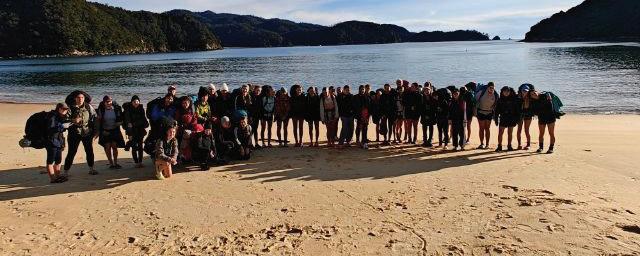
Contributions (TBC)
ϐ Students will participate in a variety of outdoor activities which may include surfing, scuba diving, and other outdoor activities. The cost of these will be communicated prior to activities and will be charged to feepayers’ accounts throughout the semester.
Course Outcomes
ϐ Physical Fitness: Students will enhance their physical fitness through engaging in regular surfing and scuba diving activities. These active pursuits promote cardiovascular endurance, strength, and flexibility. By participating in these sports, students will develop a greater understanding of the importance of maintaining a healthy and active lifestyle.
ϐ Water Safety and Skills: Students will gain a comprehensive understanding of water safety practices and develop essential skills in both surfing and scuba diving. They will learn about equipment usage, rescue techniques, and how to respond to different water conditions. This knowledge will equip them with the skills necessary to enjoy these activities safely and responsibly.
ϐ Personal Resilience: Through the challenges presented by surfing and scuba diving, students will cultivate personal resilience. They will learn to manage their fears, overcome obstacles, and adapt to changing environments. By pushing their boundaries and persevering through difficulties, students will develop resilience that extends beyond the water and positively impacts their overall wellbeing.
ϐ Environmental Awareness: The course will foster a deep appreciation for the marine environment and its preservation. Students will learn about marine ecosystems, environmental sustainability, and the impact of human activities on the oceans. By instilling a sense of responsibility and stewardship, students will become advocates for marine conservation and develop a greater understanding of their role in protecting our natural world.
30 ELEVATE YEAR 11 SELECTION HANDBOOK | 2024 – 2025
The achievement standards listed for each subject have been chosen carefully, but are subject to change.
PERSONAL GROWTH & DEVELOPMENT
Health Education

Course Description
Health Education in Year 11 aims to provide students with a comprehensive understanding of various aspects of health and wellbeing. This course focuses on mental health, wellbeing, study skills, sexuality education, and nutrition. Through engaging discussions, activities, and resources, students will develop the knowledge and skills necessary to make informed decisions, maintain a healthy lifestyle, and promote wellbeing in themselves and others.
Contributions
ϐ Students will participate in a variety of activities to deal with stress as part of the mental health unit. These activities include; yoga, mindfulness and outdoor activities. These activities will be charged to parents’ accounts as they take place.
Learning Objectives
ϐ Mental Health: Students will explore the concept of mental health, including common mental health disorders, their causes, symptoms, and treatment options. They will learn strategies for promoting positive mental health and resilience, as well as recognising and supporting others who may be struggling.
ϐ Wellbeing: Students will examine the components of overall wellbeing, including physical, emotional, social, and spiritual aspects. They will learn techniques for managing stress, building healthy relationships, practicing self-care, and fostering a balanced lifestyle.
ϐ Study Skills: Students will develop effective study skills and strategies to enhance their learning potential. They will explore time management, goal setting, organization, note-taking, and exam preparation techniques. Additionally, students will learn about the importance of maintaining a healthy work-life balance.
ϐ Sexuality Education: Students will receive comprehensive sexuality education that promotes healthy relationships, consent, and understanding of sexual diversity. They will learn about reproductive health, safe sex practices, contraception, sexually transmitted infections (STIs), and the importance of informed decisionmaking regarding their sexual health.
ϐ Nutrition: Students will explore the principles of nutrition and their impact on overall health and wellbeing. They will examine balanced diets, food groups, the importance of hydration, and the effects of nutrition on physical and mental performance. Students will also learn to evaluate food labels, make informed dietary choices, and develop healthy eating habits.
Live. Learn. Lead | Queen Margaret College 31
The achievement standards listed for each subject have been chosen carefully, but are subject to change.
Be The Change
Course Description
Be The Change focuses on students developing their selfawareness, careers education and leadership. Students will learn to better understand themselves and their character strengths, and develop self-awareness through personality tests, wellbeing reflections, along with making decisions and taking action. They will also develop career competencies as well as learn about career pathways and develop a working knowledge of processes to access tertiary learning opportunities. There is also a focus on leadership models and developing themselves as leaders.
Contributions
ϐ None
Learning Objectives
Students will:
ϐ Develop a stronger sense of self-awareness
ϐ Through analysis of good leadership models and examples – better understanding of themselves as a leader
ϐ Have a kete of wellbeing exercises
ϐ Explore opportunities for their future
ϐ Develop their careers education and be able to transfer those skills to any potential career
ϐ Make decisions and take actions
FAQs
Why is Queen Margaret making this change?
With the proposed changes to NCEA, this is a great opportunity to evaluate what we have done in the past and offer new options that will cater to the diversity in our student community and ensure best preparation for Year 12 where we offer NCEA Level 2 and the IB Diploma.
How will the new Year 11 programme lead to academic success?
Our new Year 11 programme puts learning at the centre so that students and teachers have the time to focus on the joys of new knowledge without the undue pressure of over assessment. Furthermore, both options have been designed to more effectively lead into the Level 2 NCEA or the IB Diploma so that students are better prepared for this next step in their learning. Our current Year 11 cohort is not affected by these changes as they are being well prepared for Levels 2 and 3 and the IB Diploma under our current NCEA Level 1 programme.
Financial Literacy
Course Description:
Students will learn about budgeting, with a focus on:
ϐ setting smart goals
ϐ analysing personal income and spending
ϐ creating a budgeting plan
Students will also learn about methods used to calculate gross income, using annual, monthly, fortnightly, weekly and hourly income rates. They will also learn about factors that affect net pay, such as income tax and KiwiSaver deductions.
Contributions
ϐ None
Outcome
Learning how to manage their financial future through making goals and understanding income, tax and tax.
Will students get enough credits to pass with both options?
Students are required to gain 60 credits at Level 1, including 20 Literacy and Numeracy credits known as the co-requisites. This means that both options for 2024 will offer students more credits than they require to gain the Level 1 qualification.
What if a student hasn’t gained their Literacy and Numeracy credits in 2023?
Students have two ways of gaining their literacy and numeracy credits, either through the examinations that they sit in 2023 or through the achievement standards offered in English and Mathematics in 2024. We will ensure that all students gain their literacy and numeracy credits before the end of 2024.
32 ELEVATE YEAR 11 SELECTION HANDBOOK | 2024 – 2025
The achievement standards listed for each subject have been chosen carefully, but are subject to change.
Will students still have enough credits for certificate and course endorsement?
No matter which option students choose, they will be able to attain certificate and course endorsements. For certificate endorsement students are required to gain 50 credits at either Achieved, Merit or Excellence level across all their subjects to endorse the year. For individual course endorsement, which recognises student achievement in an individual course (subject area) students are required to achieve 14 credits at Achieved, Merit or Excellence level in that subject. At least one of the standards needs to be achieved through an external assessment.
Choosing Your Pathway
For many, the question of “Where to?” after secondary school looms large. The internet has numerous sites which offer advice and guidance for secondary students. A New Zealand website that might be worth visiting is www.careers.govt.nz/plan-your-career/
University websites
Will students still have end of year examinations?
External assessments have been changed to incorporate more than just examinations. Therefore, across several subjects students will still have examinations at the end of the year as well as external assessments throughout the year which may take the form of a portfolio, performance and much more.
Students are also welcome to seek advice from the school’s Careers Director.
University websites contain a wealth of relevant information and should be consulted before final decisions are made about future tertiary or career pathways.
Please check with your preferred university directly. A few possibilities are shown below.
New Zealand
University of Auckland
www.auckland.ac.nz
Auckland University of Technology www.aut.ac.nz
University of Canterbury
www.canterbury.ac.nz
Lincoln University
www.lincoln.ac.nz
Massey University (Albany, Palmerston North, Wellington)
www.massey.ac.nz
University of Otago www.otago.ac.nz
Victoria University of Wellington
www.vuw.ac.nz
University of Waikato
www.waikato.ac.nz
Wellington Institute of Technology www.weltec.ac.nz
World Wide
Australian National University
www.anu.edu.au
University of Melbourne
www.unimelb.edu.au
Monash University, Australia www.monash.edu.au
University of Queensland www.uq.edu.au
University of Sydney www.usyd.edu.au
Cambridge University, UK www.cam.ac.uk
Oxford University, UK www.ox.ac.uk
Duke University, USA www.duke.edu
Harvard, USA www.harvard.edu
MIT, USA www.mit.edu
Princeton University, USA
www.princeton.edu
Stanford University, USA www.stanford.edu
Yale University, USA www.yale.edu
Monash University www.monash.edu.au
University of Queensland www.uq.edu.au
University of Sydney www.usyd.edu.au
Live. Learn. Lead | Queen Margaret College 33
Curriculum overview
* Year 1– 6
Transdisciplinary Approach: Six Key Themes are studied over the course of the year. These themes cover all learning areas. In addition we offer specialist teaching in Music, Dance, French, Te Reo Māori and Religious Education.
34 ELEVATE YEAR 11 SELECTION HANDBOOK | 2024 – 2025 PYP MYP *Year 1 - 6 Year 7 Year 8 Year 9 Year 10
NCEA
Arts Visual Arts Music Drama Visual Arts Music Drama Visual Arts Music Drama Visual Arts Music Drama Design Technology Technology Technology Materials Technology Digital and Product Design Individuals & Societies Humanities Humanities Humanities Humanities Business and Economics Language & Literature English English English English Language Acquistion Languages French Spanish Japanese Chinese Te Reo Māori French Spanish Japanese Chinese Te Reo Māori French Spanish Japanese Chinese Te Reo Māori Mathematics Mathematics Mathematics Mathematics Mathematics
(Some
Level 1)
Physical Education Physical Education Physical Education Physical Education Sciences Sciences Sciences Sciences Sciences
Physical & Health Education
Religious
Religious
Religious Education Religious Education
Special Character
Education
Education
Year 11
Level 1
Visual Arts
Music
Drama
Materials Technology
Digital Technology
History
Geography
Business and Economics
Year 12
Level 2
Photography
Visual Arts
Design
Music
Drama
Materials Technology
Digital Technology
History
Geography
Business and Economics
English English
Media Studies
Year 13
Level 3
Photography
Art History
Painting
Printmaking
Music
Drama
Materials Technology
Digital Technology
History
Geography
Business and Economics
Year 12 & 13
(2 year course)
Visual Arts
Music
Theatre
Film
Visual Arts: Textiles
History
Environmental Systems and Societies
Business Management
Psychology
French Spanish Japanese Chinese
Te Reo Māori
Mathematics
French Spanish Japanese Chinese
Te Reo Māori
Mathematics
Statistics
English
Media Studies
French Spanish Japanese Chinese
Te Reo Māori
Statistics
Calculus
English - Literature
Language A - Mother tongue
French Spanish Japanese Chinese Spanish Ab Initio
English
Mathematics: Analysis and Approaches
Mathematics: Application and Interpretation
Physical Education
Physics and Chemistry
Biology and Chemistry
Religious Education
Physical Education
Physics
Chemistry
Biology
Ethics, Philosophy, Religion
Physical Education
Physics Chemistry
Biology
Ethics, Philosophy, Religion
Creativity, Activity, Service
Sports, Exercise & Health Science
Physics
Chemistry
Biology
Environmental Systems and Societies
Theory of Knowledge and Extended Essay
Live. Learn. Lead | Queen Margaret College 35
NCEA IB DIPLOMA
queenmargaretcollege queenmargaretcollege enrolments@qmc.school.nz qmc.school.nz




















































